Martin Scorsese Quotes


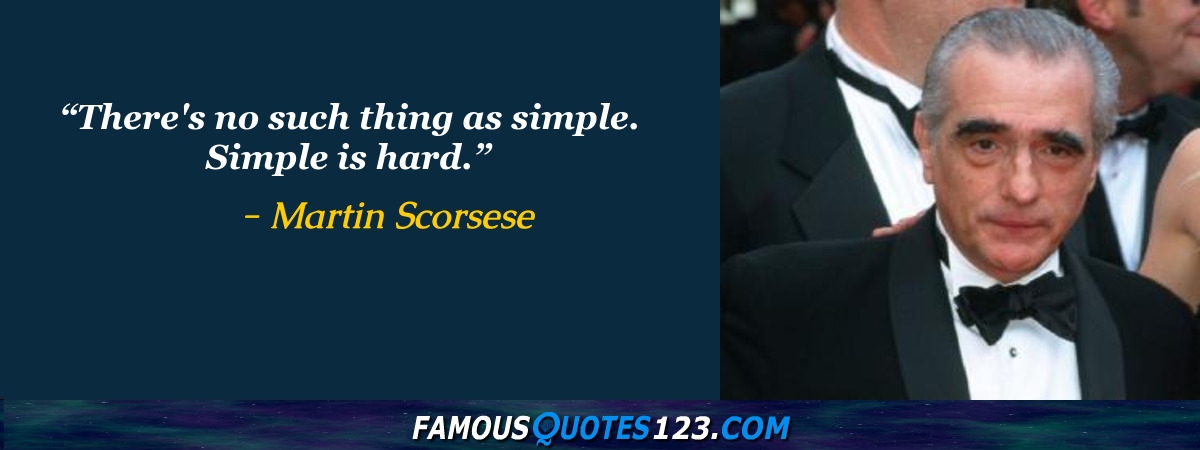
There's no such thing as simple. Simple is hard.
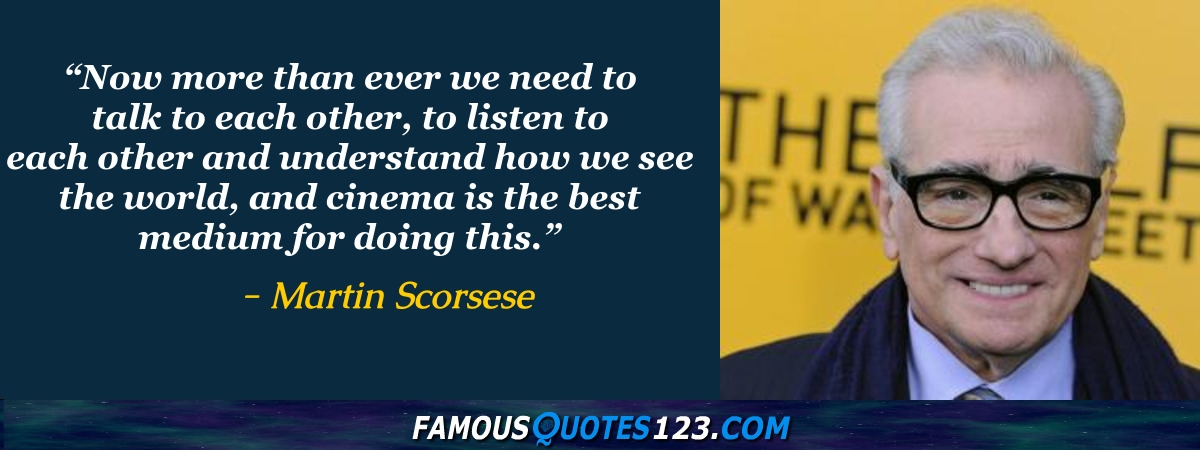
Now more than ever we need to talk to each other, to listen to each other and understand how we see the world, and cinema is the best medium for doing this.
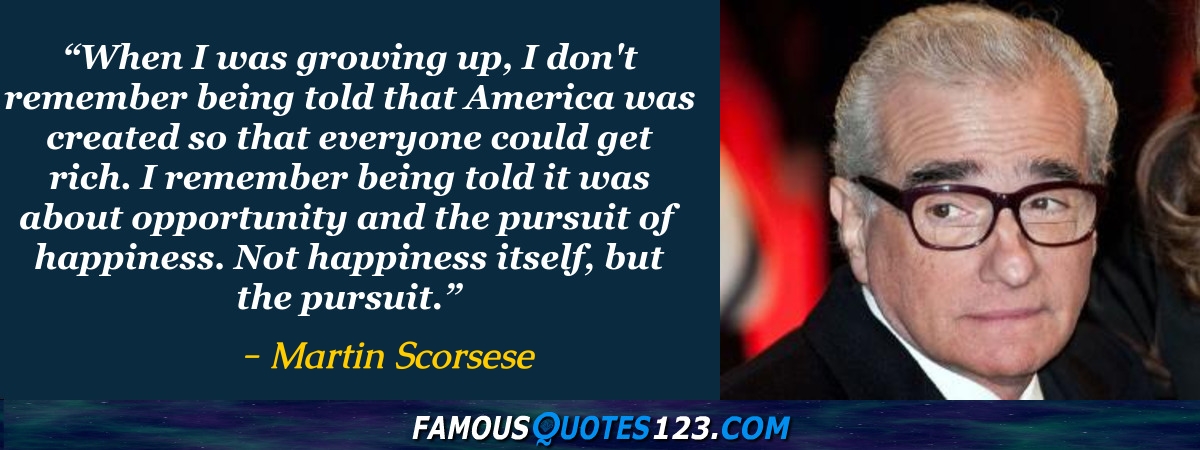
When I was growing up, I don't remember being told that America was created so that everyone could get rich. I remember being told it was about opportunity and the pursuit of happiness. Not happiness itself, but the pursuit.
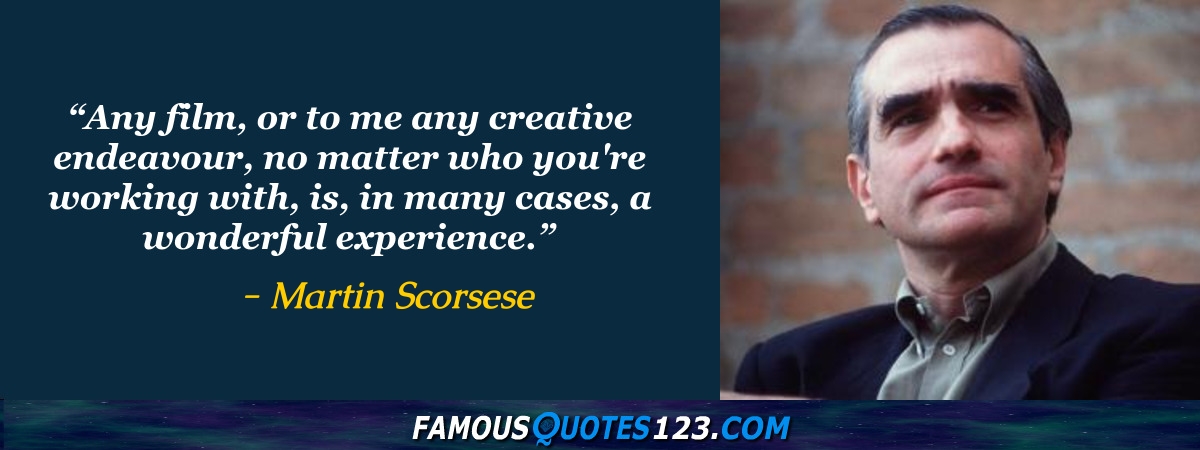
Any film, or to me any creative endeavour, no matter who you're working with, is, in many cases, a wonderful experience.
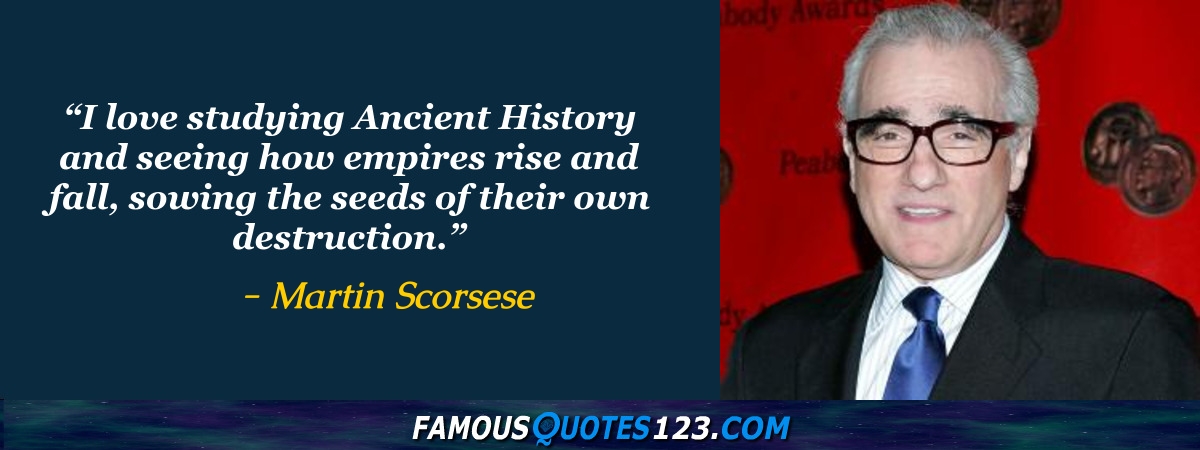
I love studying Ancient History and seeing how empires rise and fall, sowing the seeds of their own destruction.
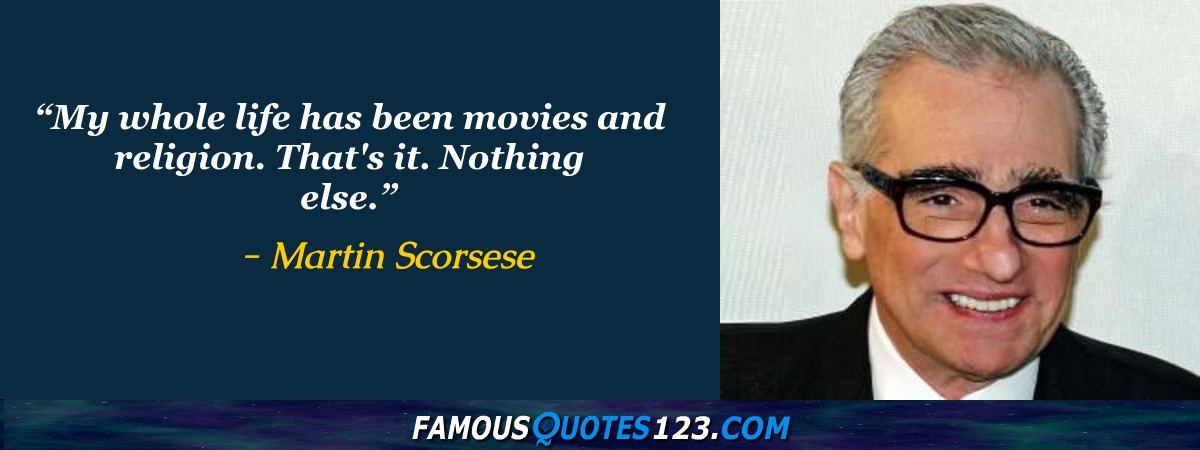
My whole life has been movies and religion. That's it. Nothing else.
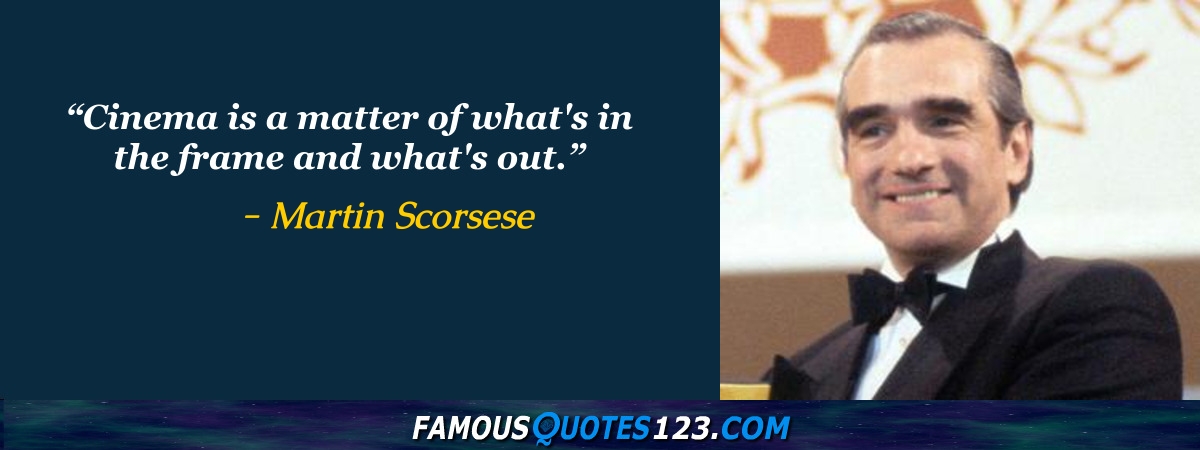
Cinema is a matter of what's in the frame and what's out.
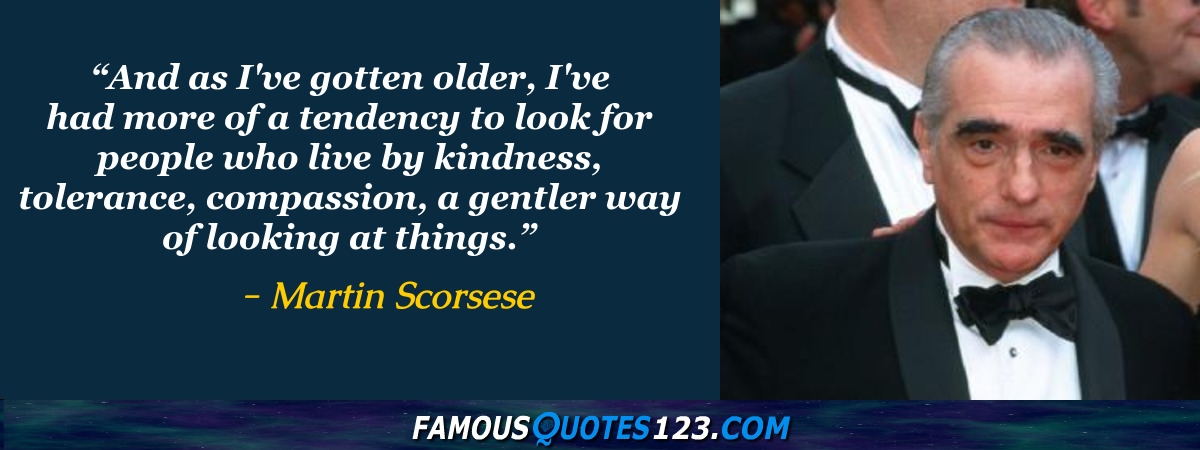
And as I've gotten older, I've had more of a tendency to look for people who live by kindness, tolerance, compassion, a gentler way of looking at things.
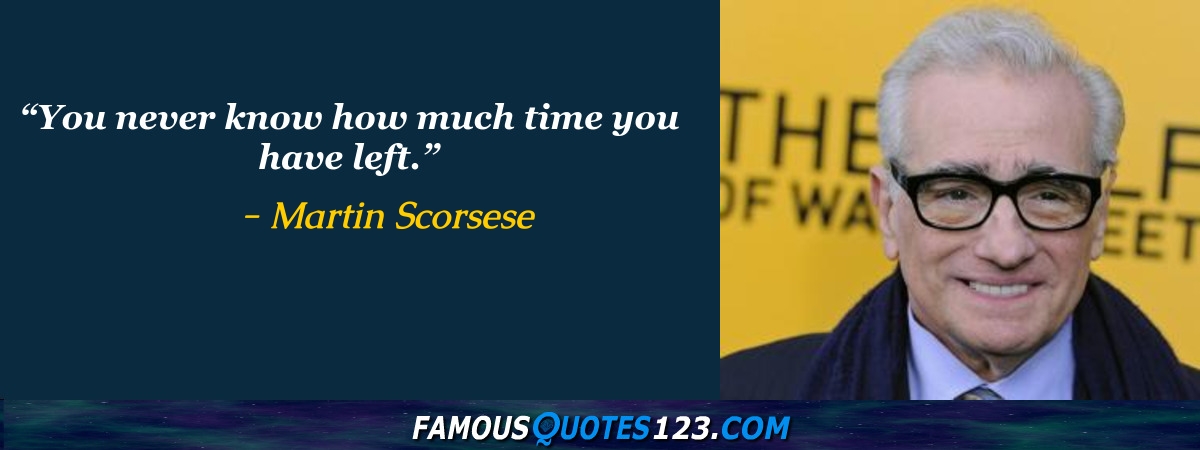
You never know how much time you have left.
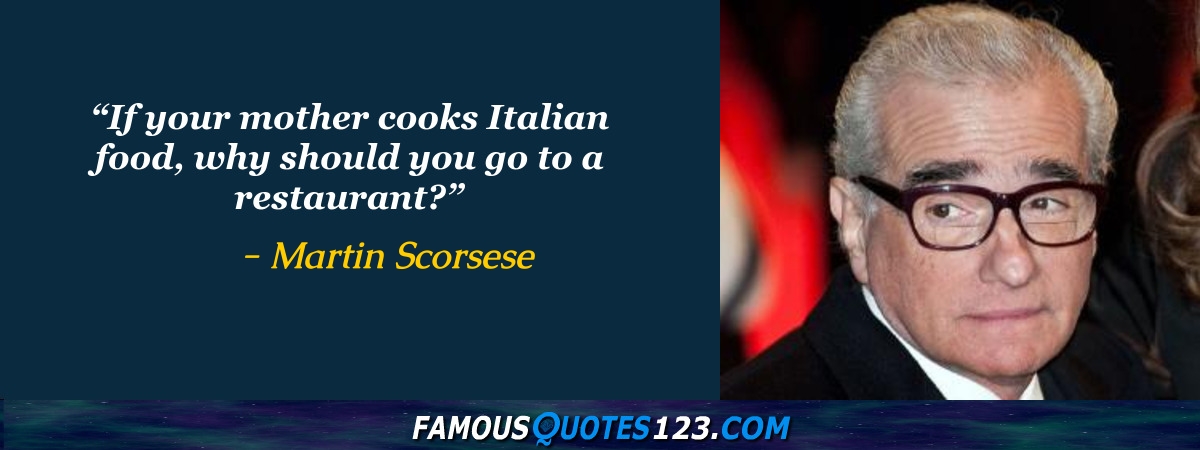
If your mother cooks Italian food, why should you go to a restaurant?
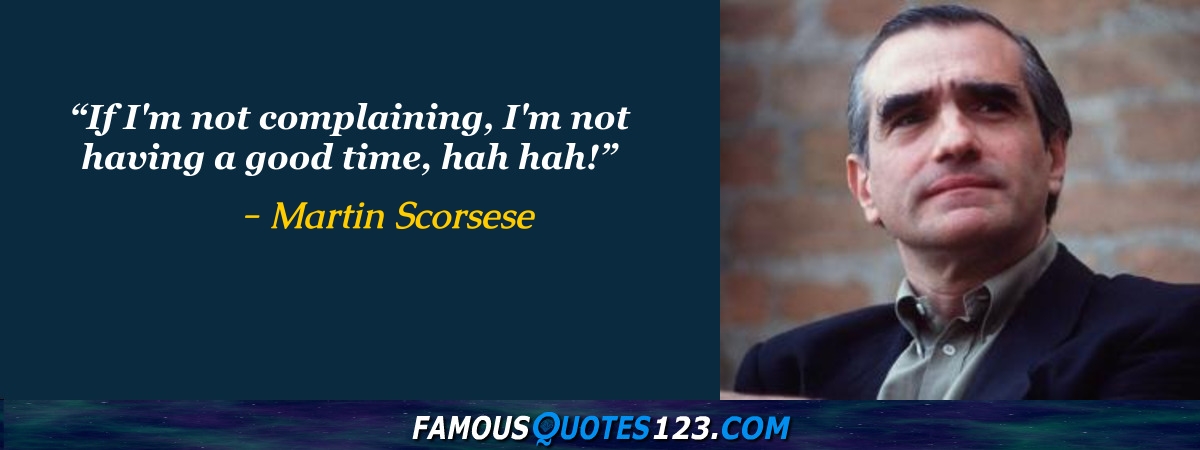
If I'm not complaining, I'm not having a good time, hah hah!
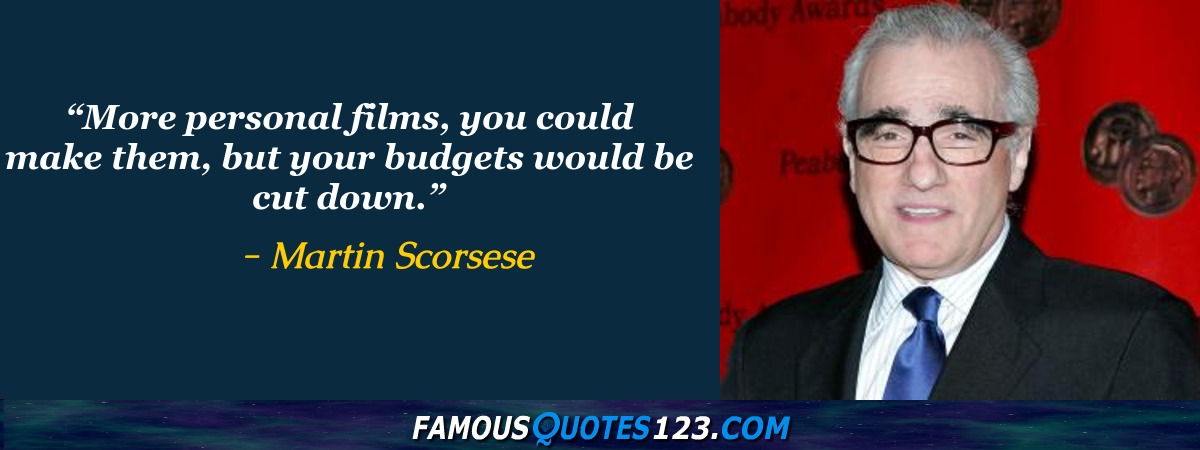
More personal films, you could make them, but your budgets would be cut down.
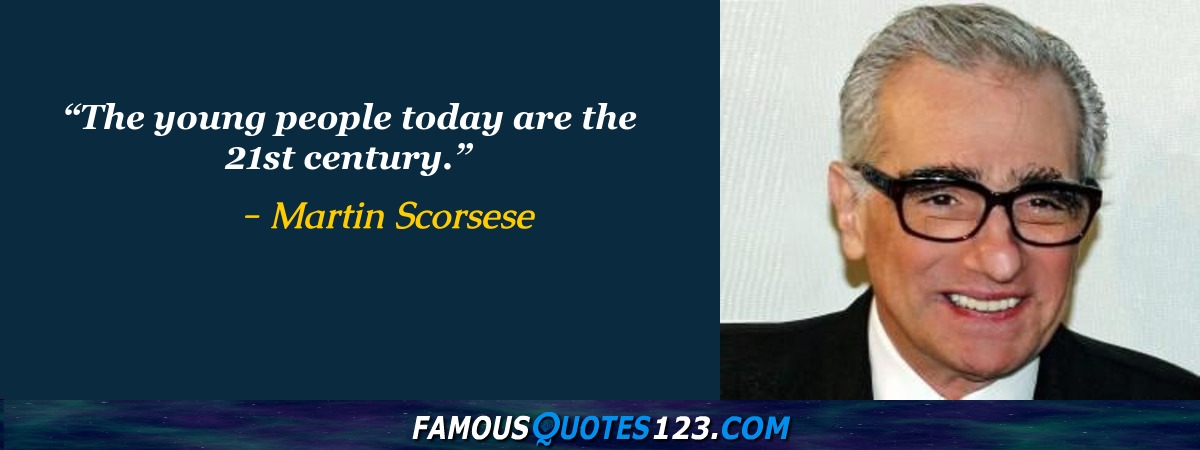
The young people today are the 21st century.
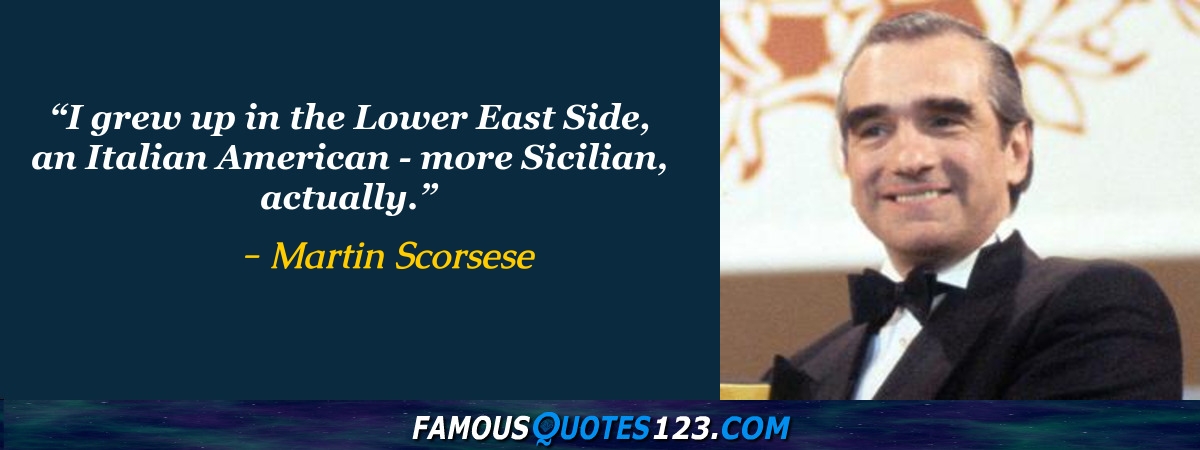
I grew up in the Lower East Side, an Italian American - more Sicilian, actually.
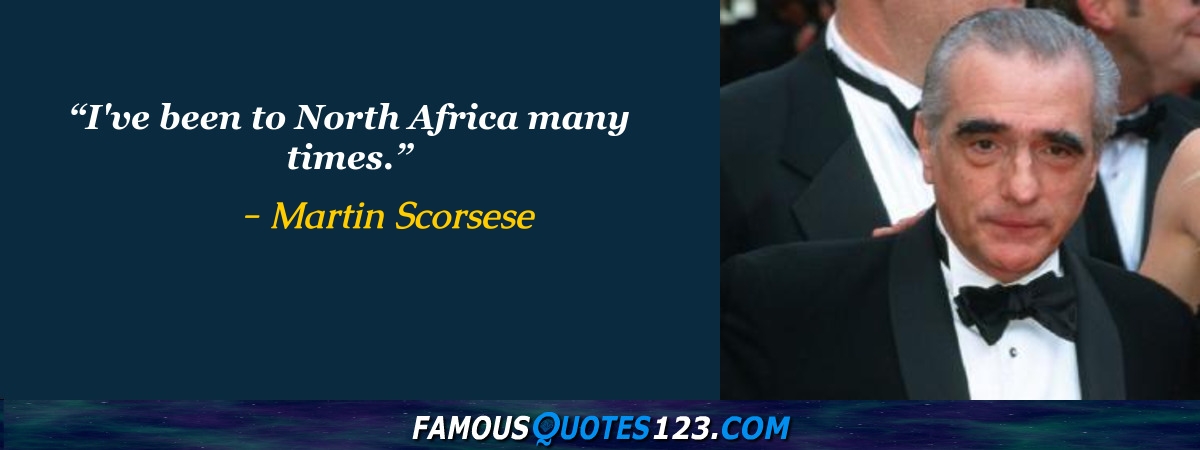
I've been to North Africa many times.
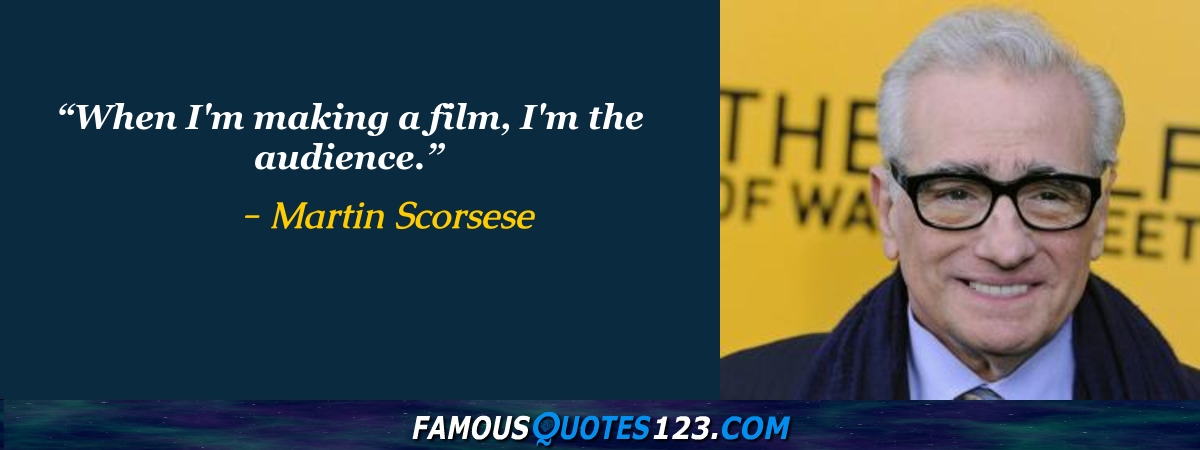
When I'm making a film, I'm the audience.
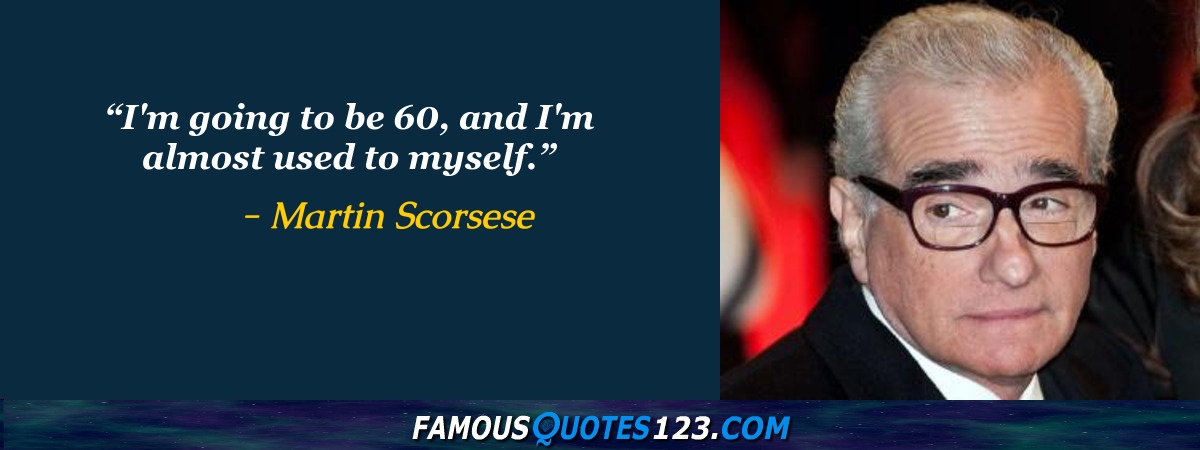
I'm going to be 60, and I'm almost used to myself.
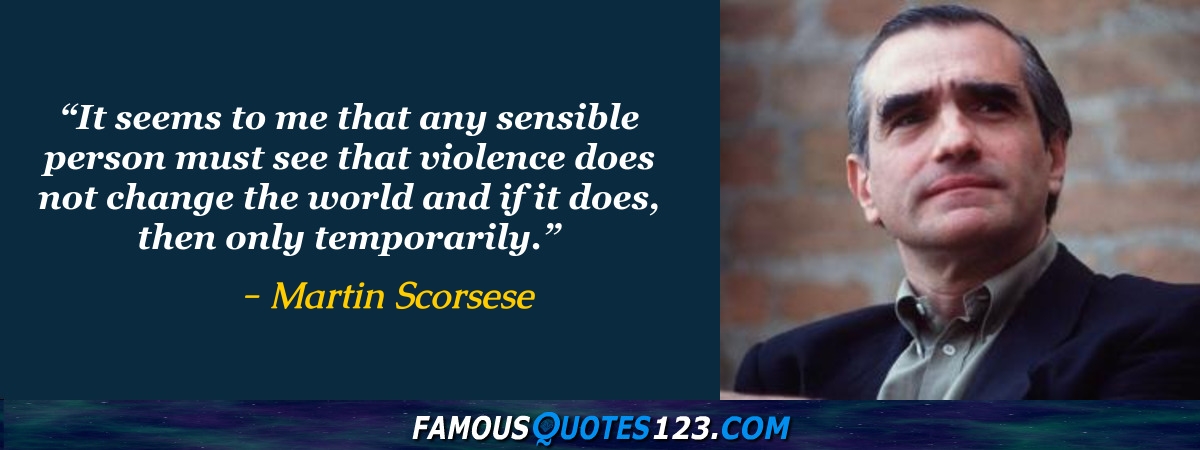
It seems to me that any sensible person must see that violence does not change the world and if it does, then only temporarily.
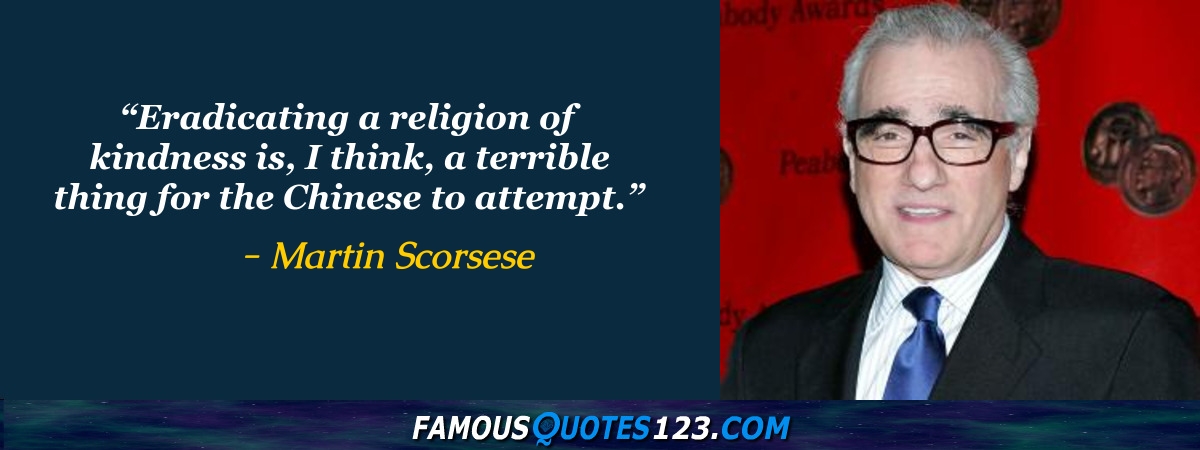
Eradicating a religion of kindness is, I think, a terrible thing for the Chinese to attempt.
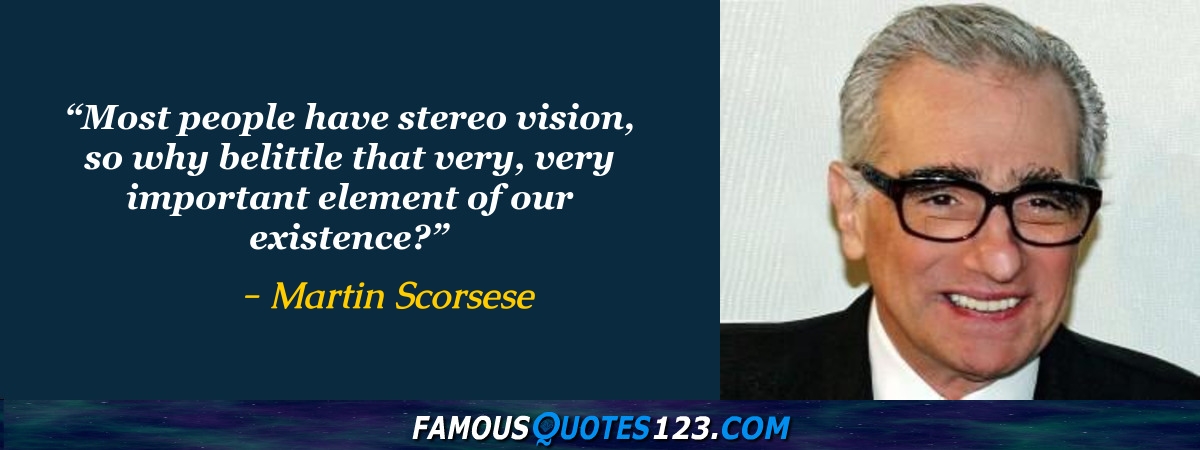
Most people have stereo vision, so why belittle that very, very important element of our existence?
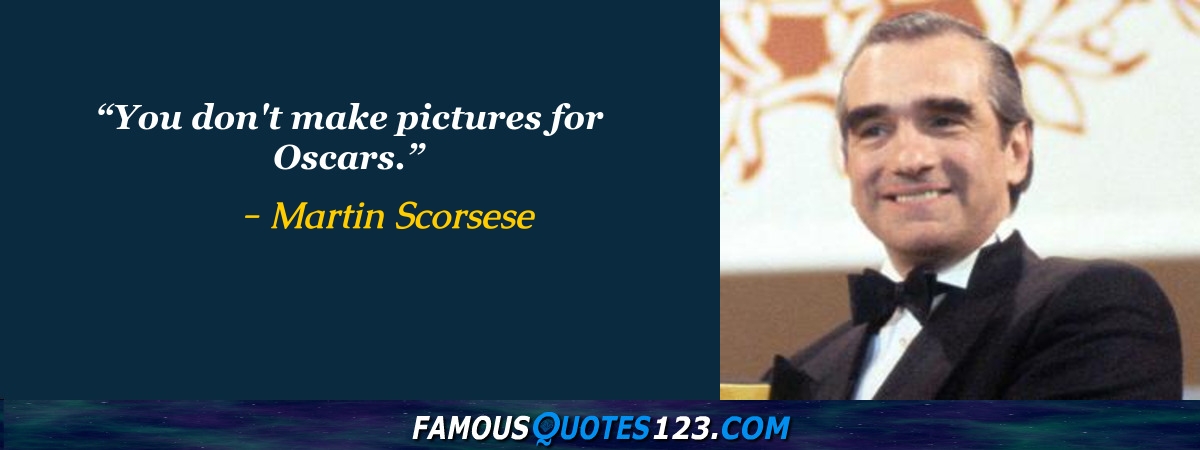
You don't make pictures for Oscars.
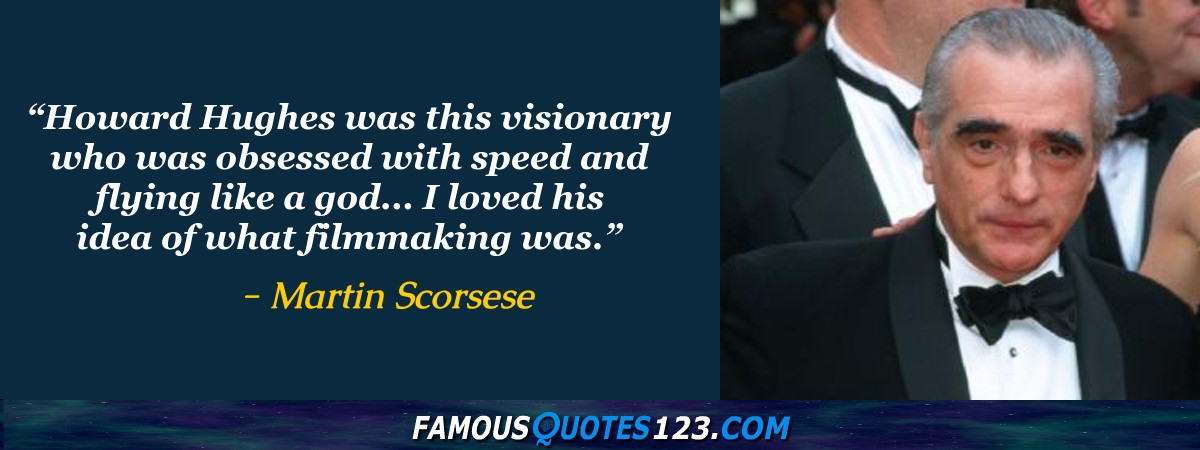
Howard Hughes was this visionary who was obsessed with speed and flying like a god... I loved his idea of what filmmaking was.
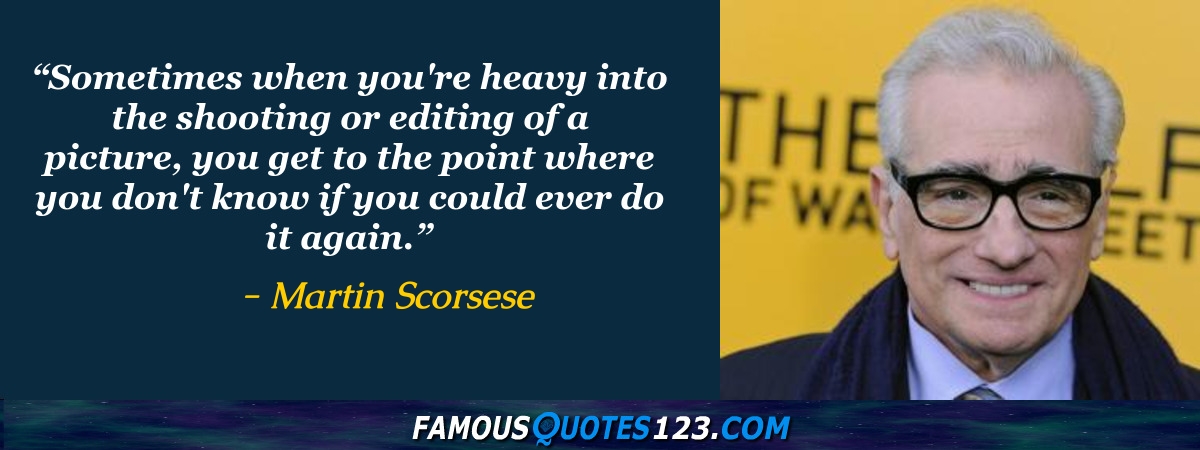
Sometimes when you're heavy into the shooting or editing of a picture, you get to the point where you don't know if you could ever do it again.
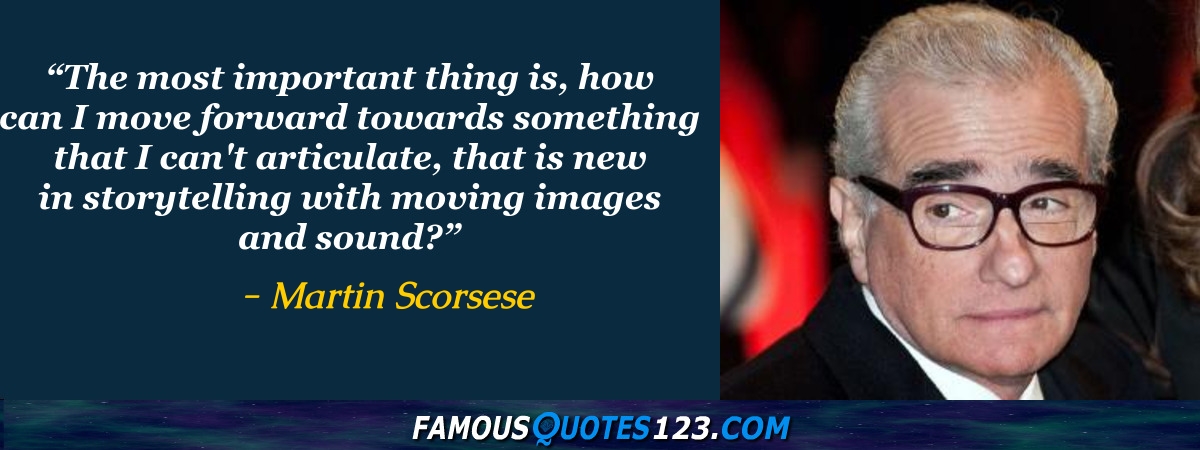
The most important thing is, how can I move forward towards something that I can't articulate, that is new in storytelling with moving images and sound?
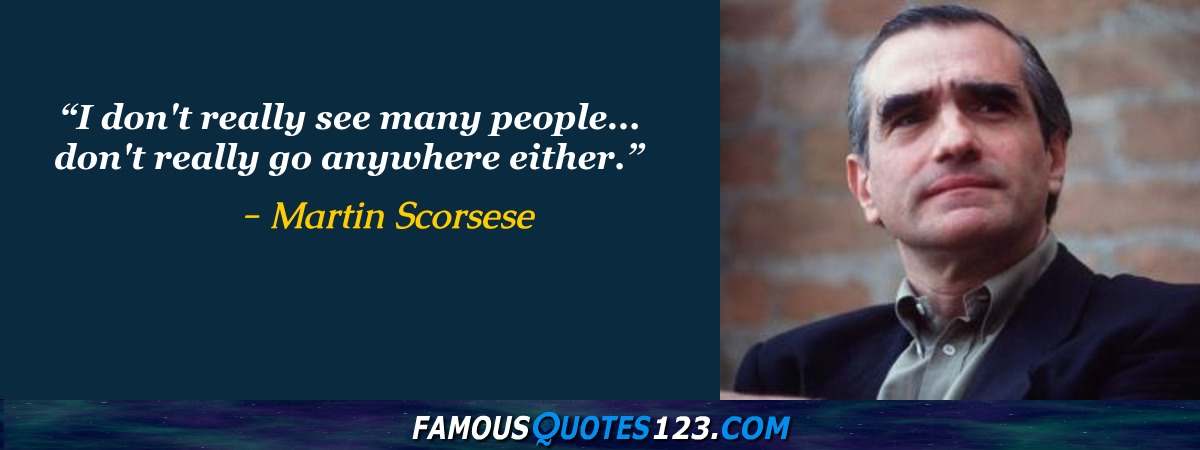
I don't really see many people... don't really go anywhere either.
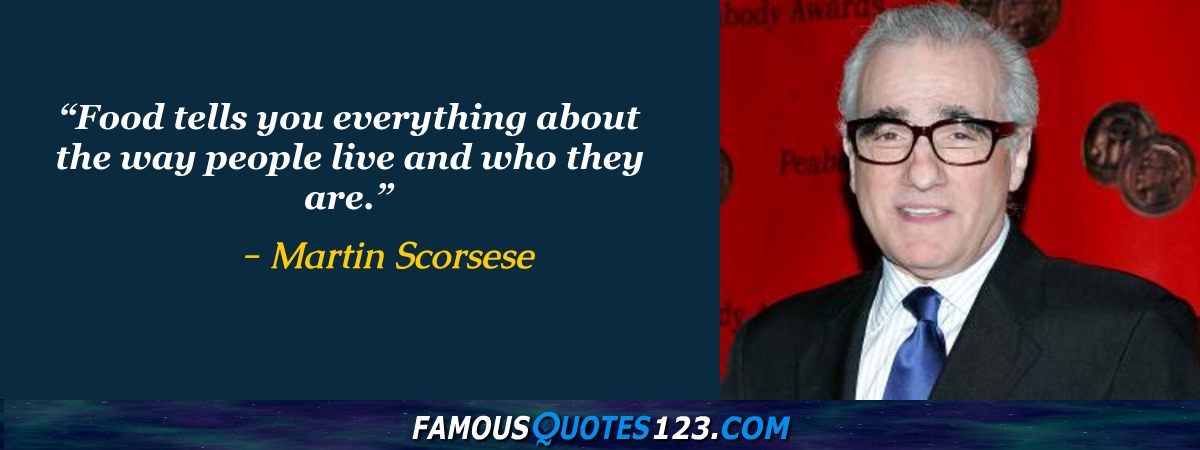
Food tells you everything about the way people live and who they are.
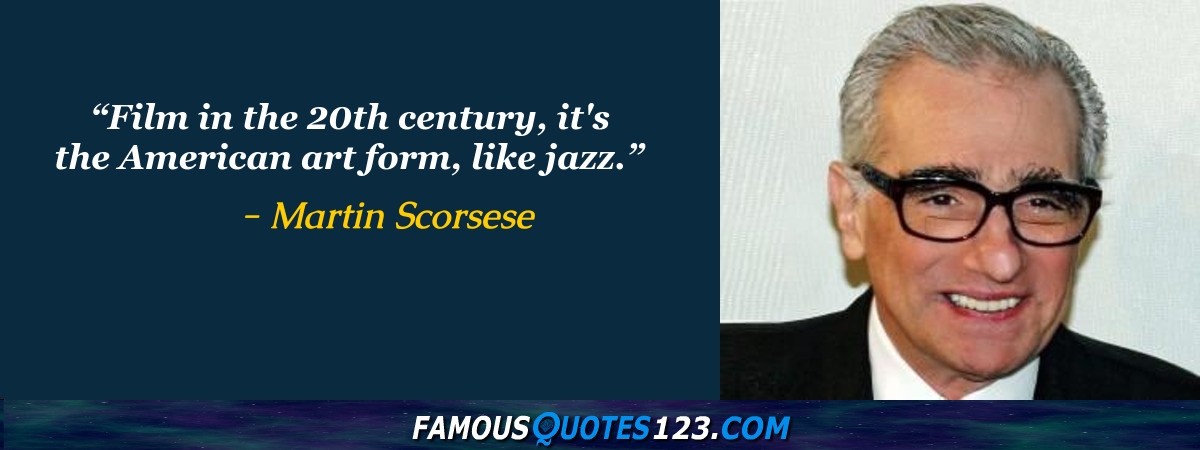
Film in the 20th century, it's the American art form, like jazz.
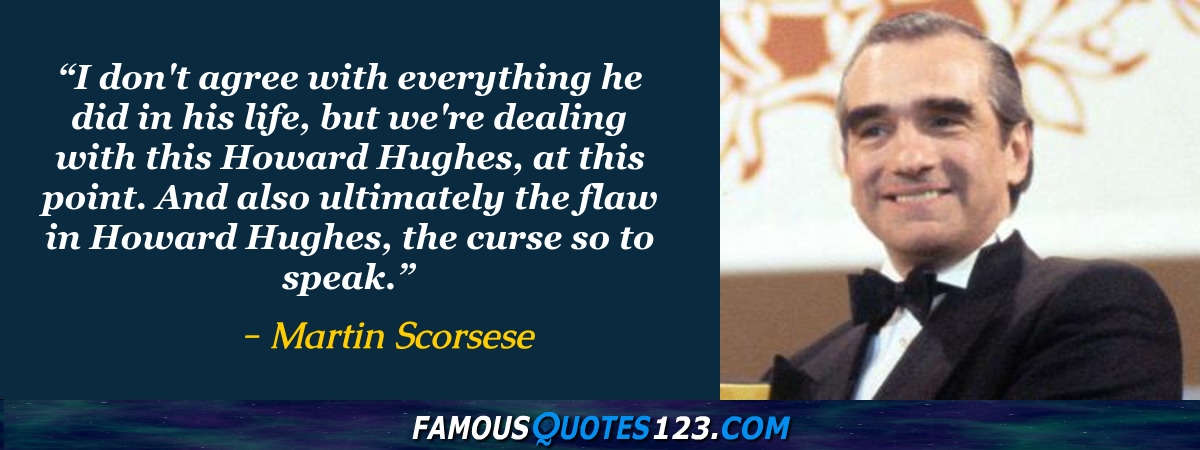
I don't agree with everything he did in his life, but we're dealing with this Howard Hughes, at this point. And also ultimately the flaw in Howard Hughes, the curse so to speak.
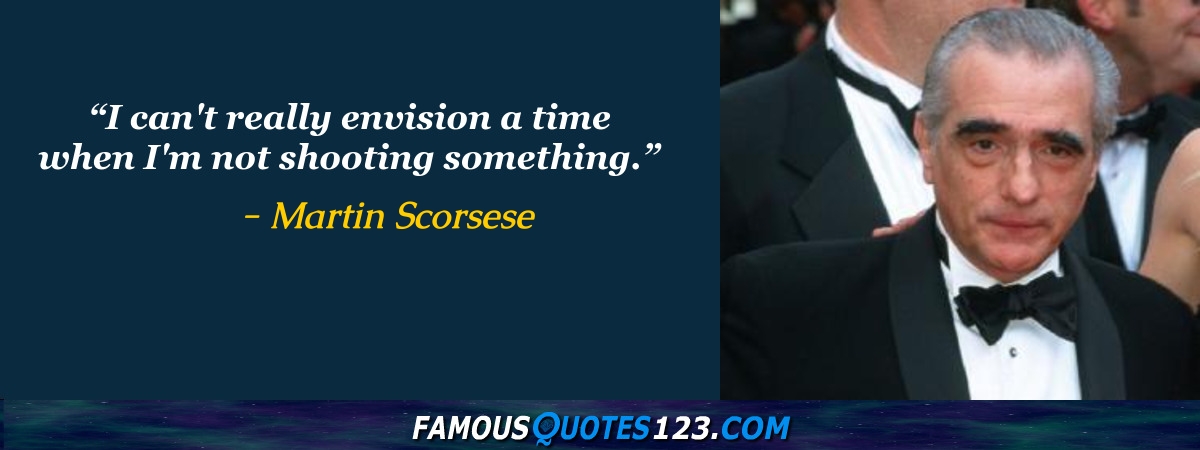
I can't really envision a time when I'm not shooting something.
Our world is so glutted with useless information, images, useless images, sounds, all this sort of thing. It's a cacophony, it's like a madness I think that's been happening in the past twenty-five years. And I think anything that can help a person sit in a room alone and not worry about it is good.
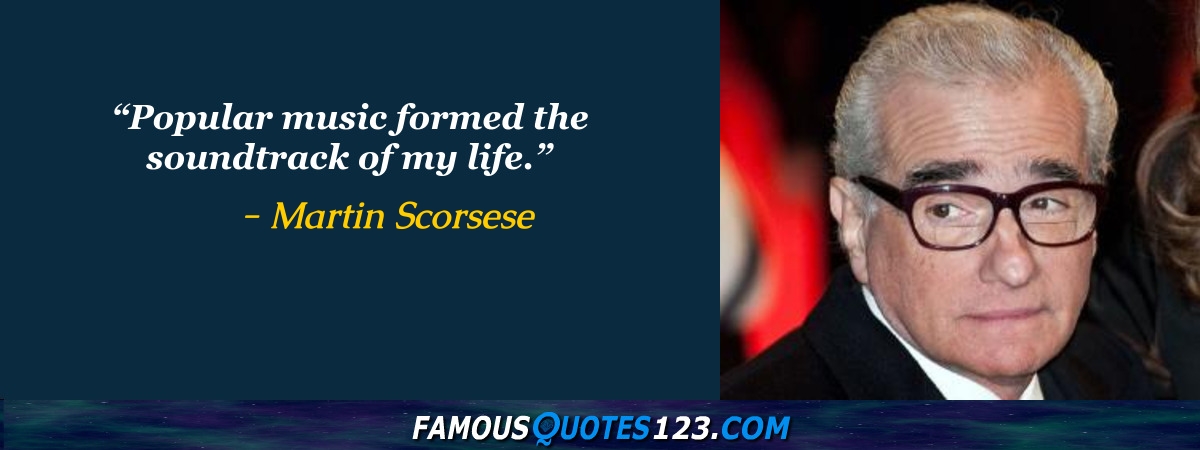
Popular music formed the soundtrack of my life.
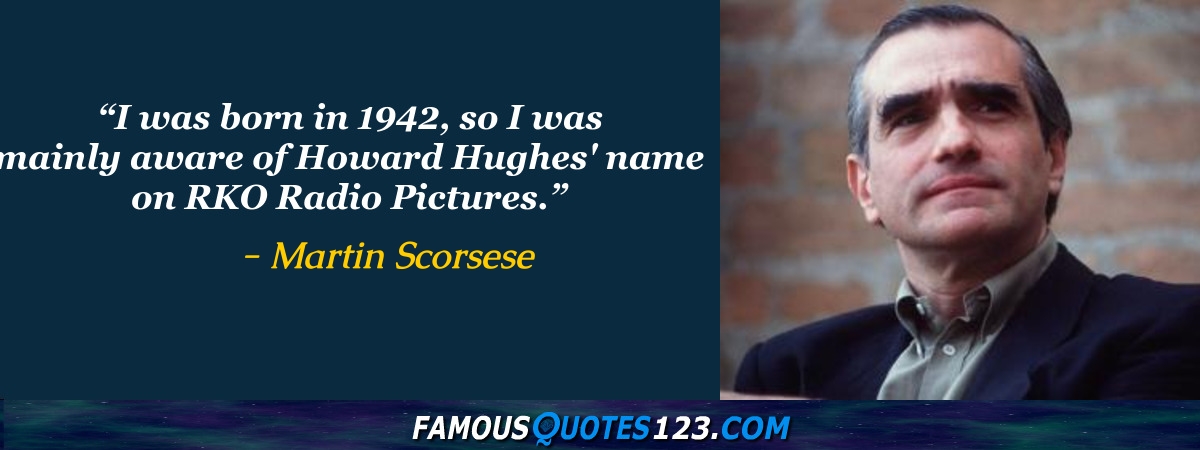
I was born in 1942, so I was mainly aware of Howard Hughes' name on RKO Radio Pictures.
We can't keep thinking in a limited way about what cinema is. We still don't know what cinema is. Maybe cinema could only really apply to the past or the first 100 years, when people actually went to a theater to see a film, you see?
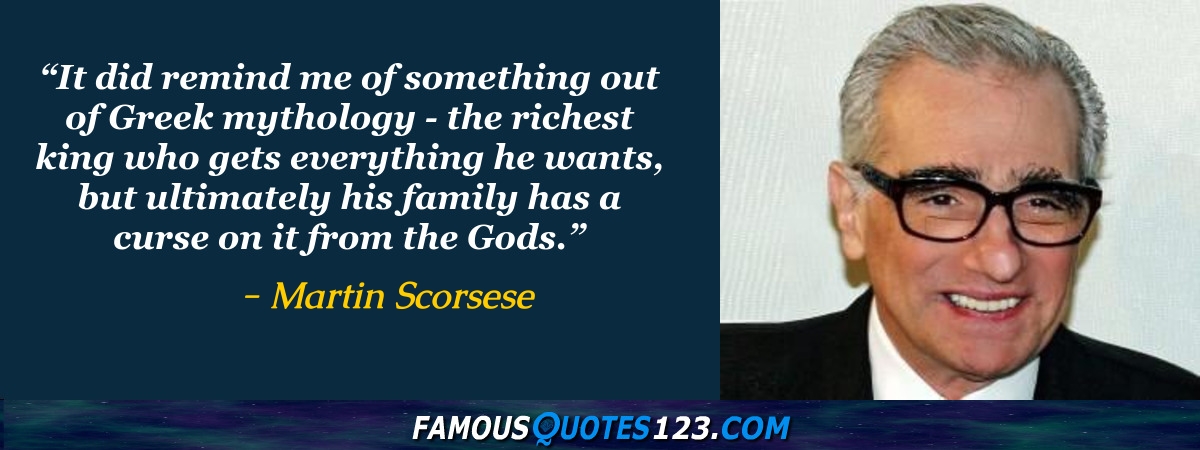
It did remind me of something out of Greek mythology - the richest king who gets everything he wants, but ultimately his family has a curse on it from the Gods.
People say you should do it this way, someone else suggests that, yes, there's financing, but maybe you should use this actor. And there are the threats, at the end - if you don't do it this way, you'll lose your box office; if you don't do it that way, you'll never get financed again... 35, 40 years of this, you get beat up.
I know that I come from mid-20th century America, urban, specifically downtown New York, specifically an Italian-American area, Roman Catholic - that's who I am. And a part of what I know is there's a decency to people who tried to make a living in the kind of world that was around us and also the Skid Row area of the Bowery; it impressed me.
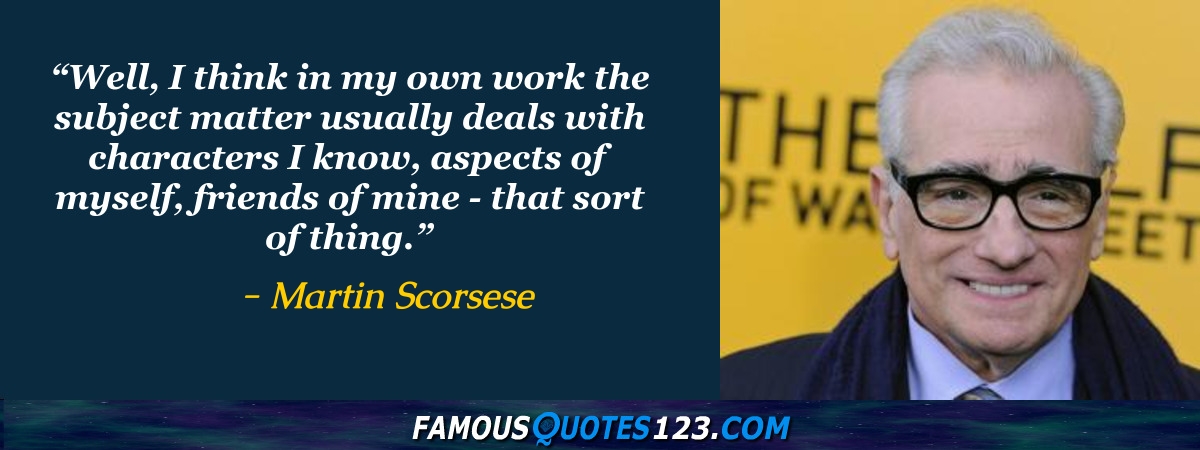
Well, I think in my own work the subject matter usually deals with characters I know, aspects of myself, friends of mine - that sort of thing.
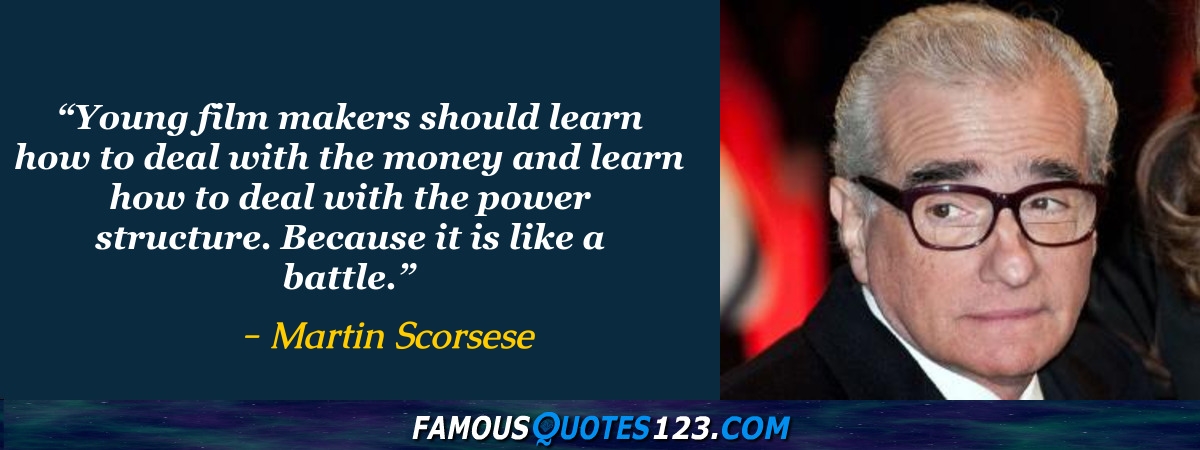
Young film makers should learn how to deal with the money and learn how to deal with the power structure. Because it is like a battle.
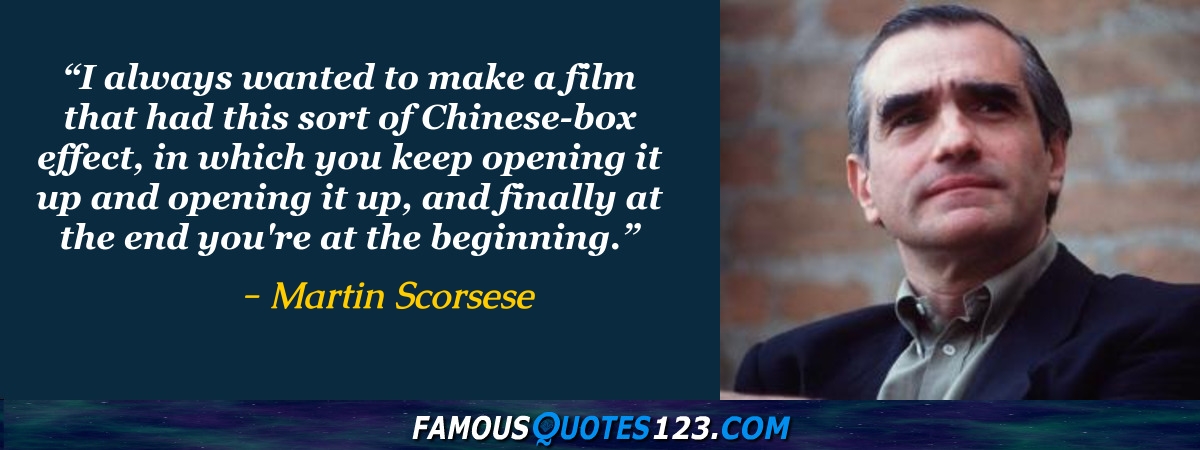
I always wanted to make a film that had this sort of Chinese-box effect, in which you keep opening it up and opening it up, and finally at the end you're at the beginning.
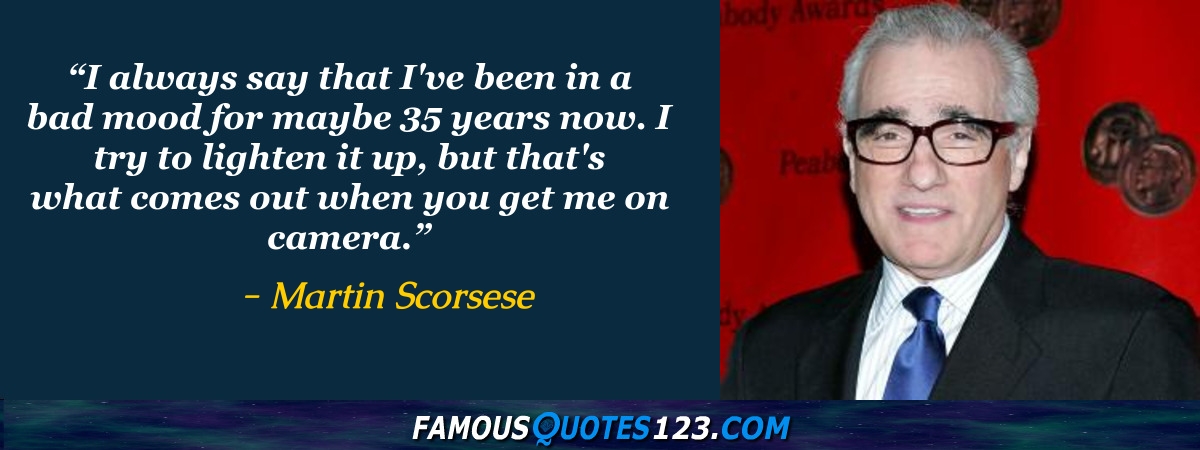
I always say that I've been in a bad mood for maybe 35 years now. I try to lighten it up, but that's what comes out when you get me on camera.
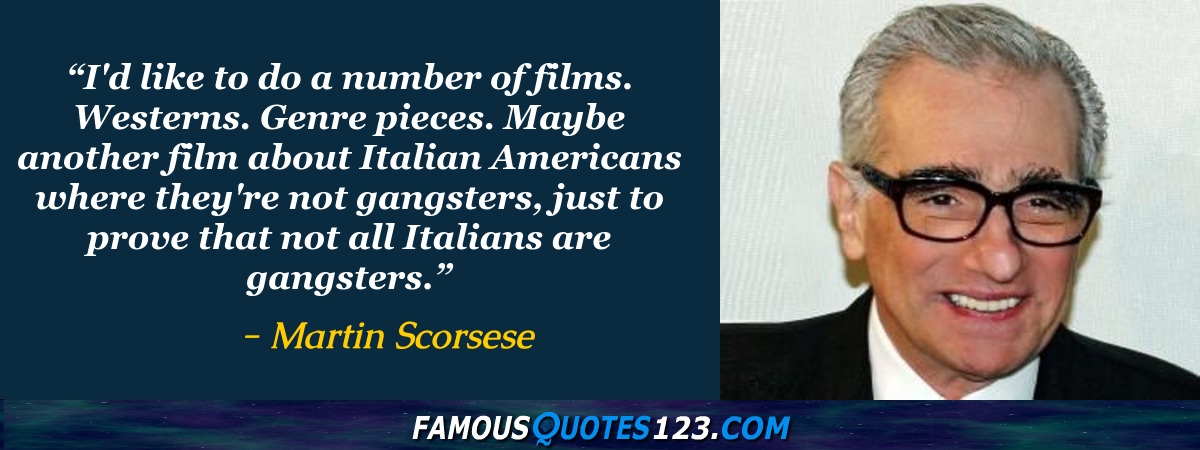
I'd like to do a number of films. Westerns. Genre pieces. Maybe another film about Italian Americans where they're not gangsters, just to prove that not all Italians are gangsters.
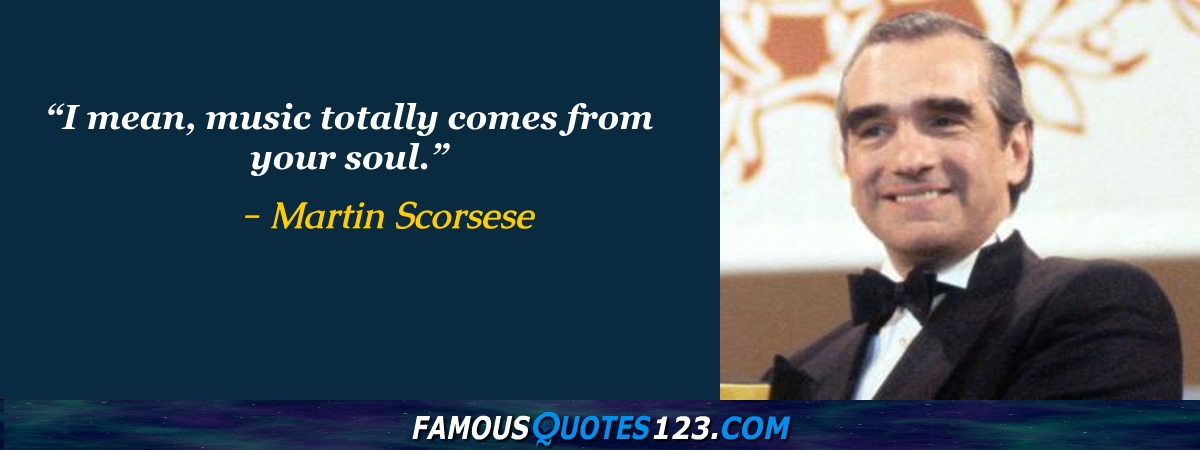
I mean, music totally comes from your soul.
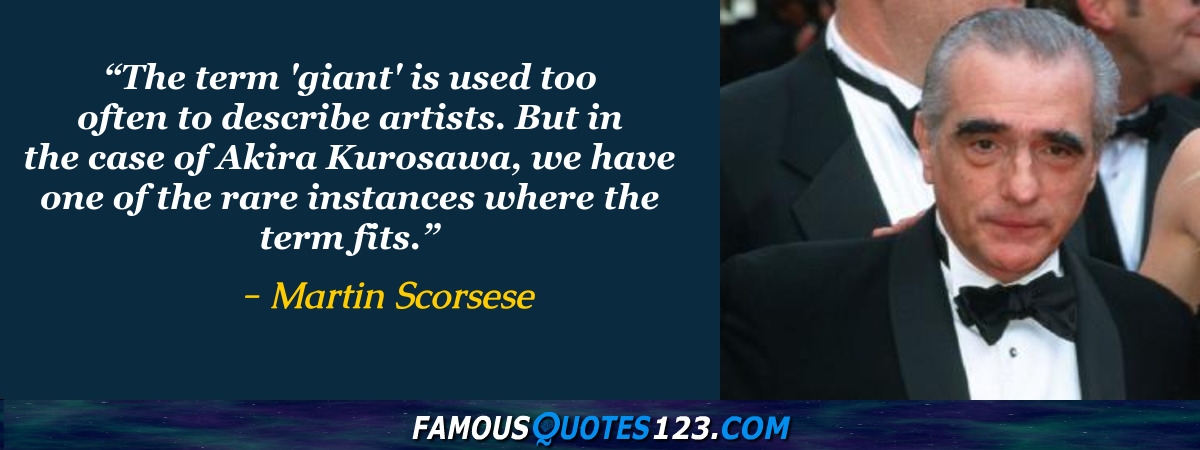
The term 'giant' is used too often to describe artists. But in the case of Akira Kurosawa, we have one of the rare instances where the term fits.
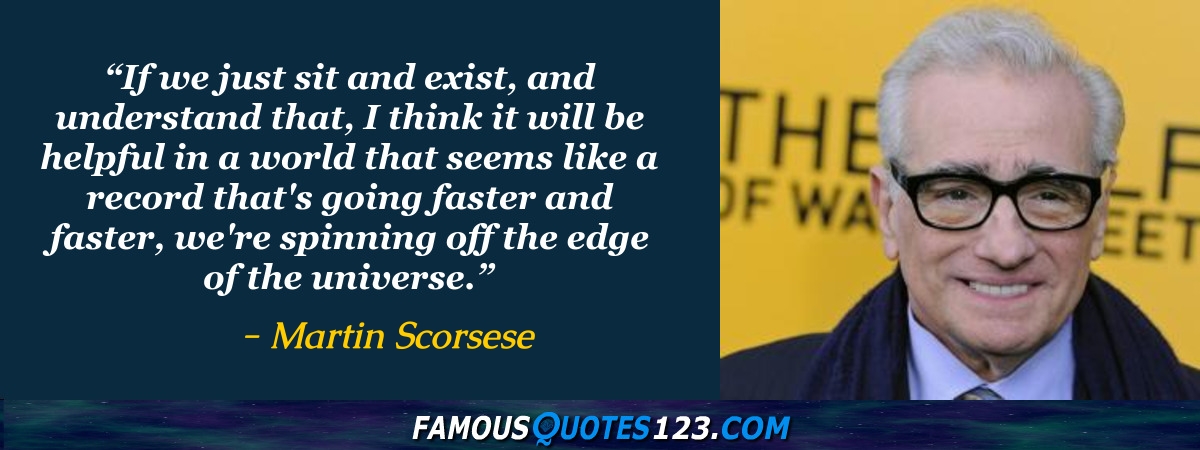
If we just sit and exist, and understand that, I think it will be helpful in a world that seems like a record that's going faster and faster, we're spinning off the edge of the universe.
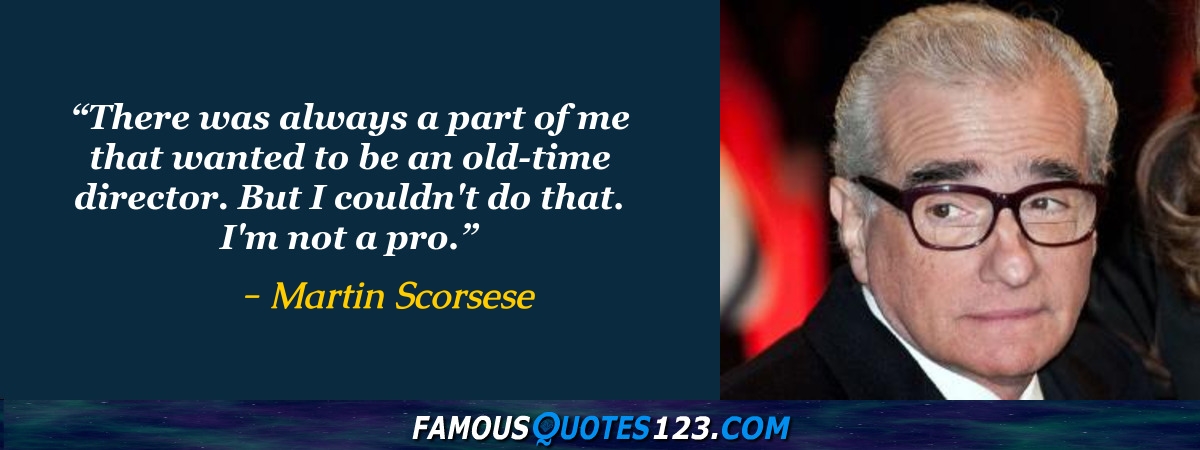
There was always a part of me that wanted to be an old-time director. But I couldn't do that. I'm not a pro.
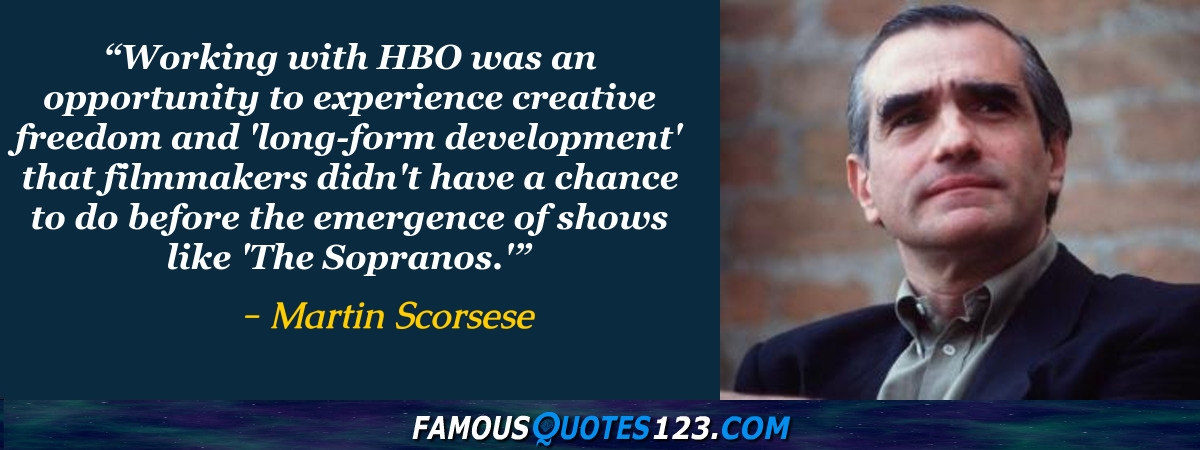
Working with HBO was an opportunity to experience creative freedom and 'long-form development' that filmmakers didn't have a chance to do before the emergence of shows like 'The Sopranos.'
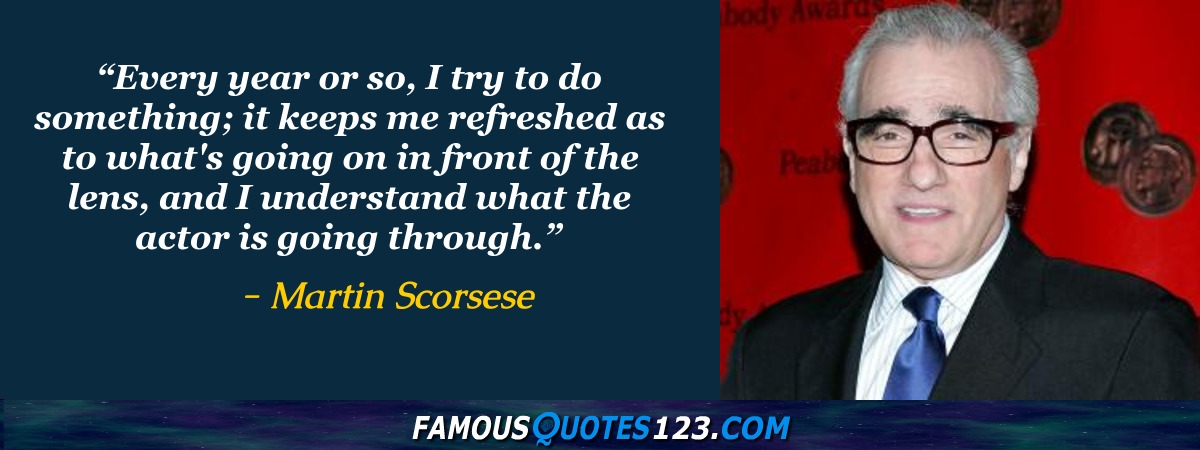
Every year or so, I try to do something; it keeps me refreshed as to what's going on in front of the lens, and I understand what the actor is going through.
I certainly wasn't able to get it when I was a kid growing up on the Lower East Side; it was very hard at that time for me to balance what I really believed was the right way to live with the violence I saw all around me - I saw too much of it among the people I knew.
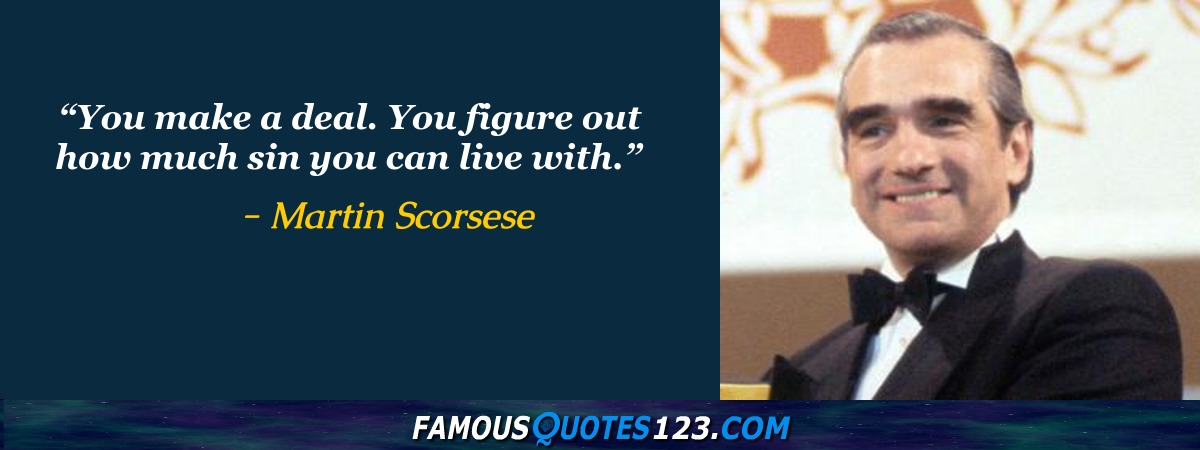
You make a deal. You figure out how much sin you can live with.
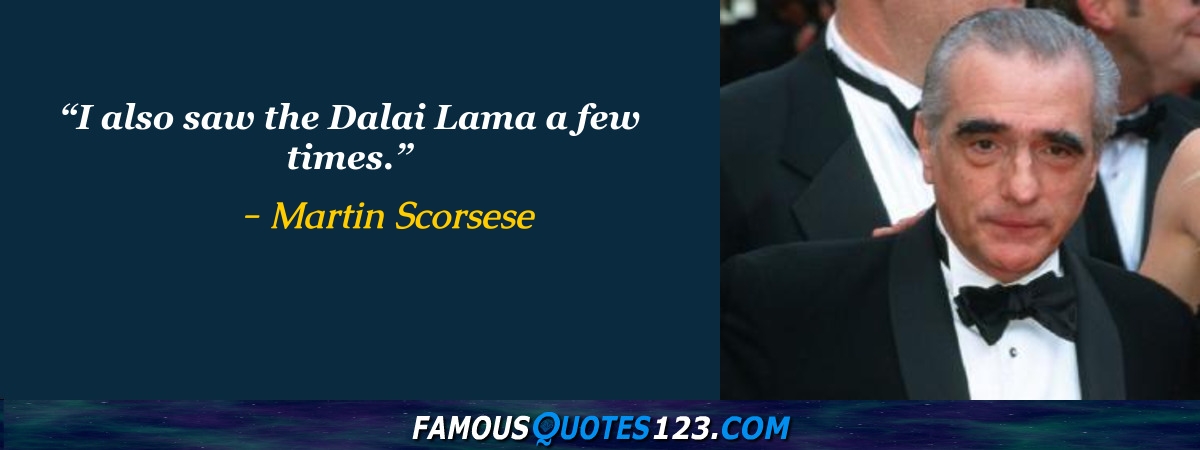
I also saw the Dalai Lama a few times.
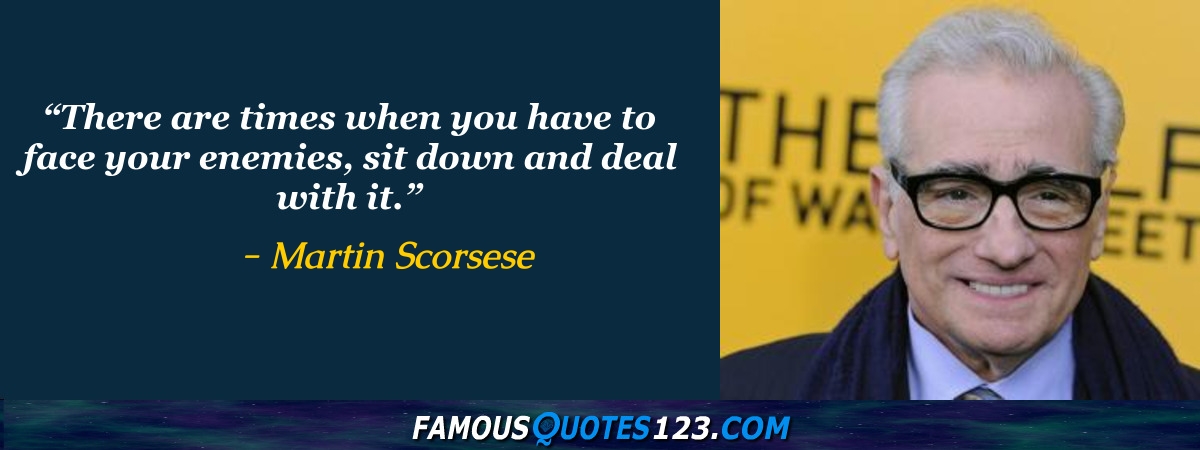
There are times when you have to face your enemies, sit down and deal with it.
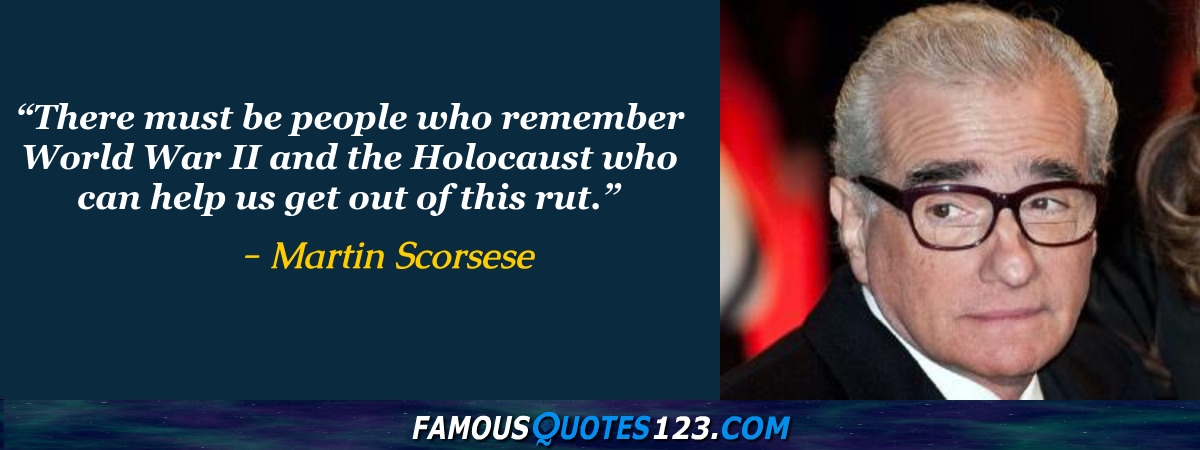
There must be people who remember World War II and the Holocaust who can help us get out of this rut.
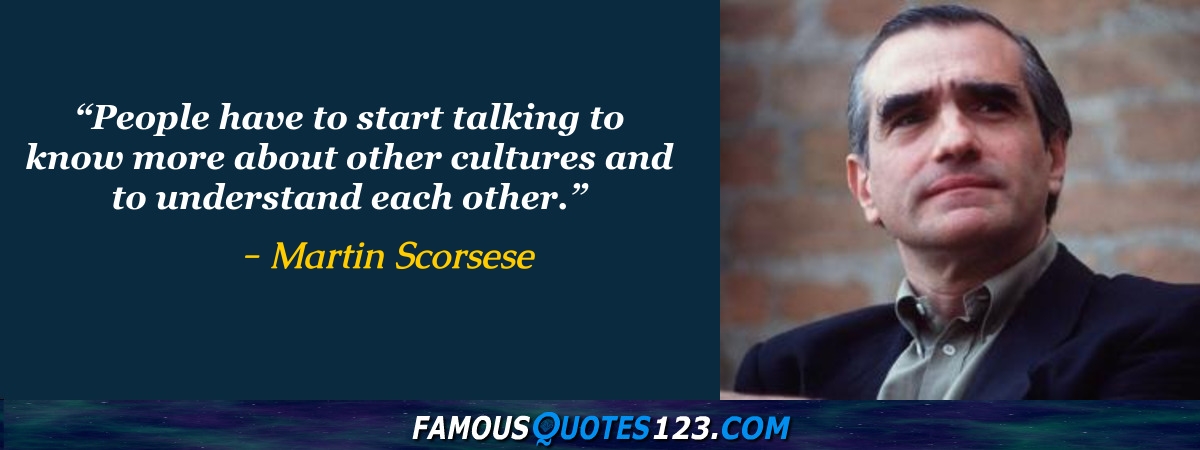
People have to start talking to know more about other cultures and to understand each other.
The cinema began with a passionate, physical relationship between celluloid and the artists and craftsmen and technicians who handled it, manipulated it, and came to know it the way a lover comes to know every inch of the body of the beloved. No matter where the cinema goes, we cannot afford to lose sight of its beginnings.
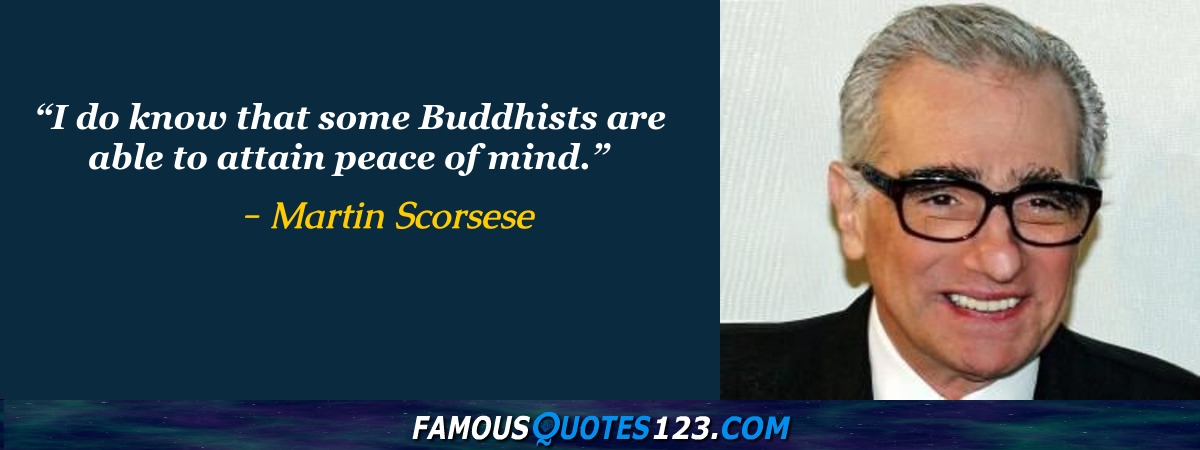
I do know that some Buddhists are able to attain peace of mind.
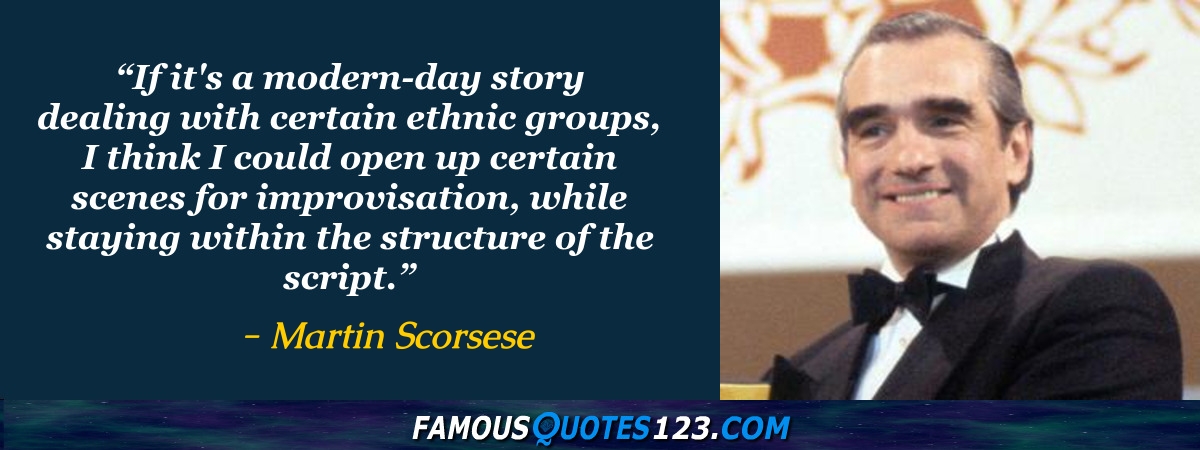
If it's a modern-day story dealing with certain ethnic groups, I think I could open up certain scenes for improvisation, while staying within the structure of the script.
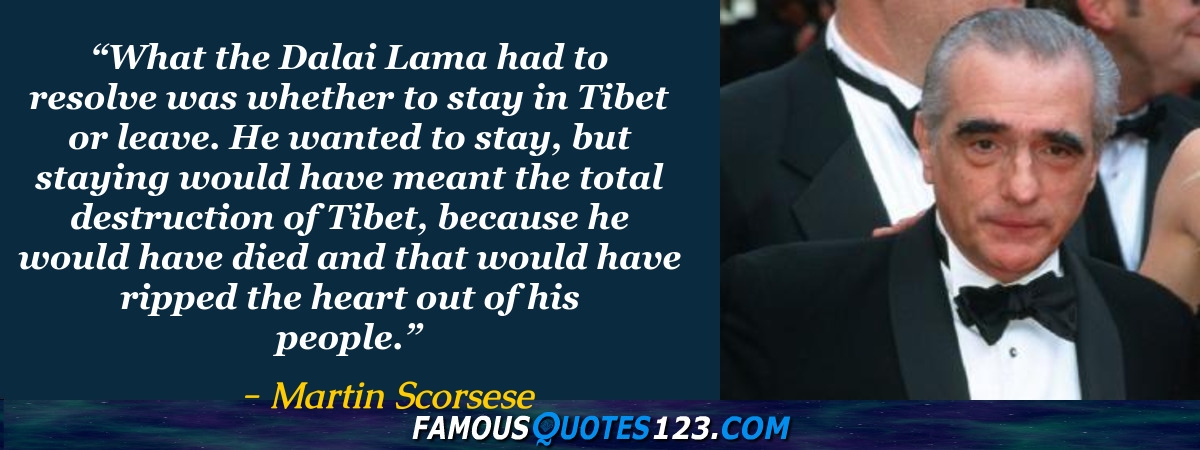
What the Dalai Lama had to resolve was whether to stay in Tibet or leave. He wanted to stay, but staying would have meant the total destruction of Tibet, because he would have died and that would have ripped the heart out of his people.
One of the things is that the good intentions of Prohibition, from reading over the years and from becoming obsessed with the research of gangs in New York City, seems to have allowed crime figures at the time, like Luciano, Capone, Torrio and Rothstein, to organize to become more powerful, which pulled all the way through until the '70s.
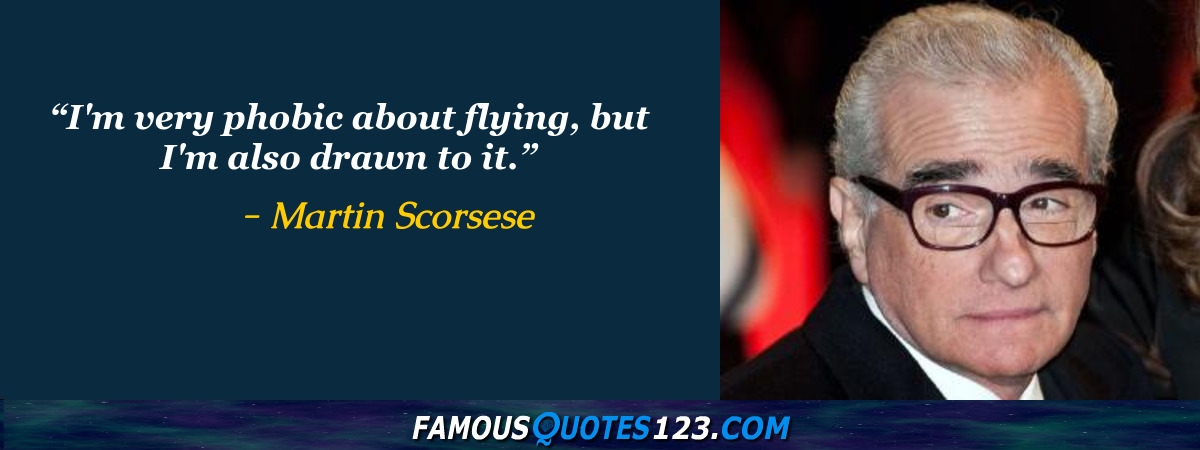
I'm very phobic about flying, but I'm also drawn to it.
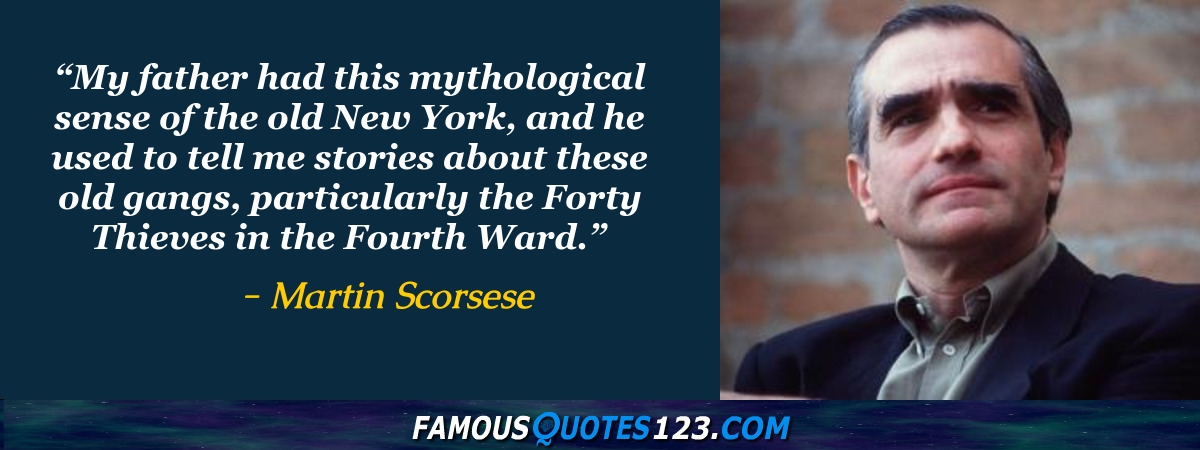
My father had this mythological sense of the old New York, and he used to tell me stories about these old gangs, particularly the Forty Thieves in the Fourth Ward.
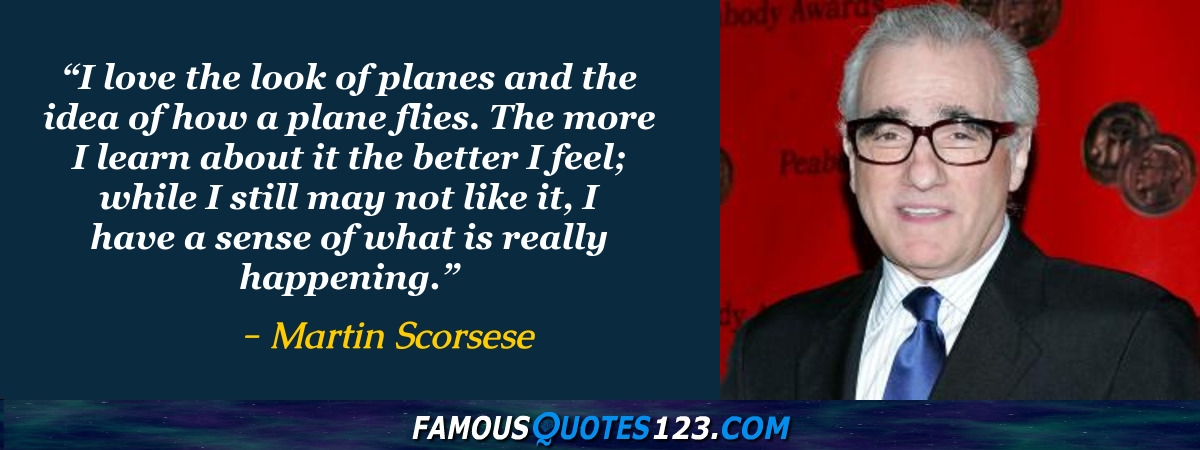
I love the look of planes and the idea of how a plane flies. The more I learn about it the better I feel; while I still may not like it, I have a sense of what is really happening.
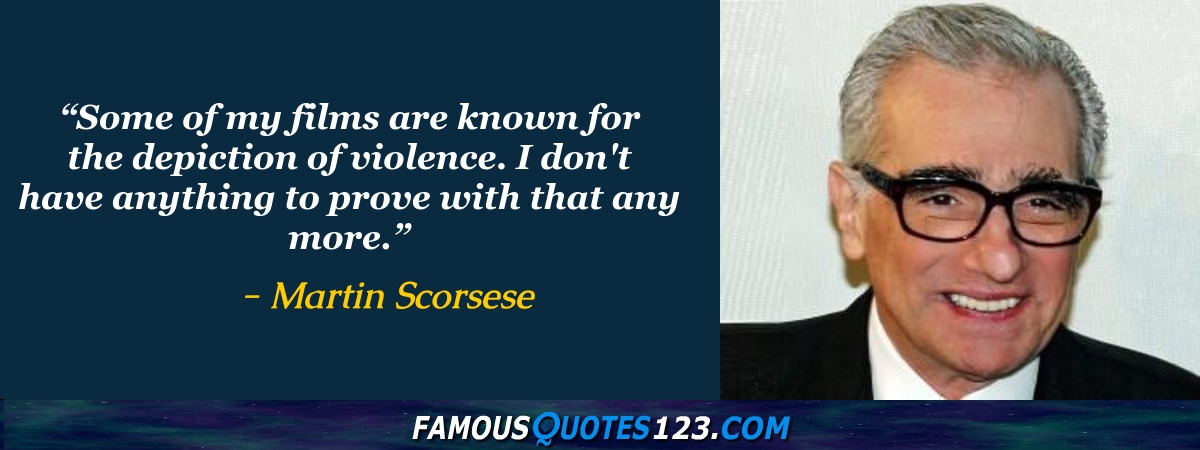
Some of my films are known for the depiction of violence. I don't have anything to prove with that any more.
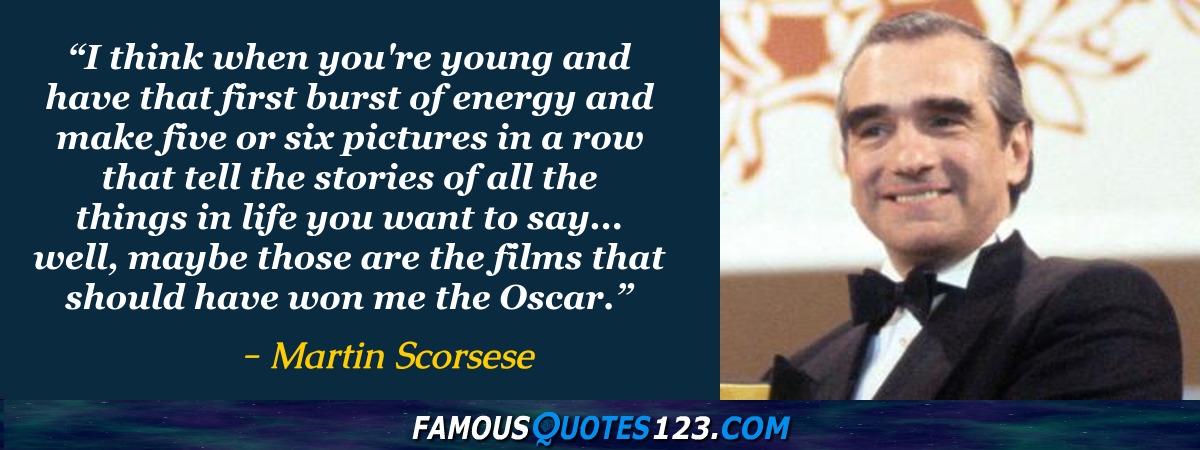
I think when you're young and have that first burst of energy and make five or six pictures in a row that tell the stories of all the things in life you want to say... well, maybe those are the films that should have won me the Oscar.
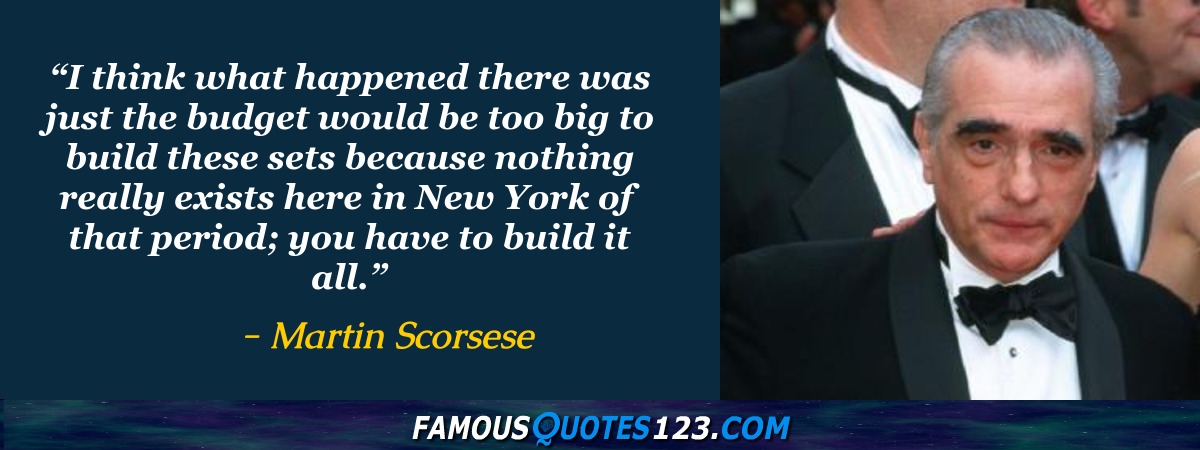
I think what happened there was just the budget would be too big to build these sets because nothing really exists here in New York of that period; you have to build it all.
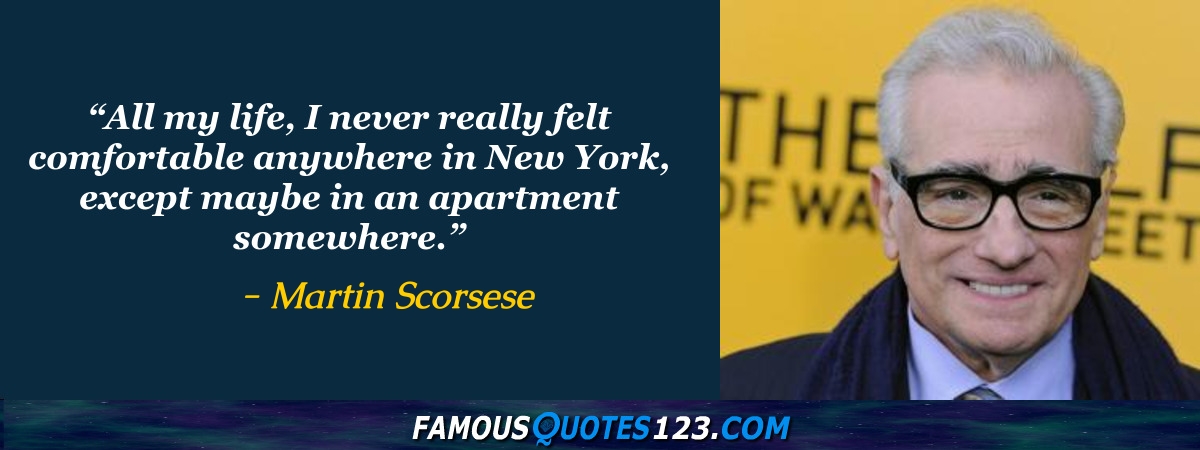
All my life, I never really felt comfortable anywhere in New York, except maybe in an apartment somewhere.
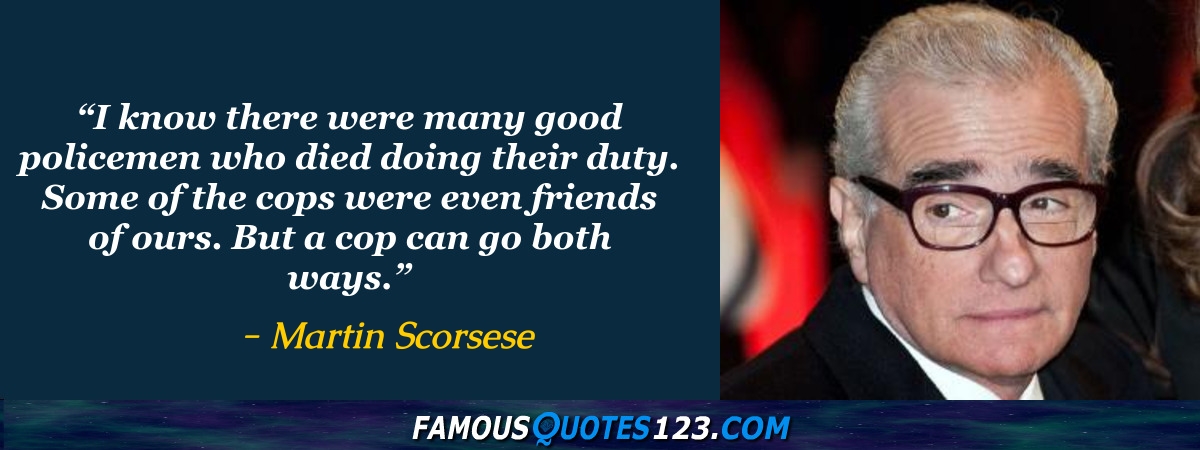
I know there were many good policemen who died doing their duty. Some of the cops were even friends of ours. But a cop can go both ways.
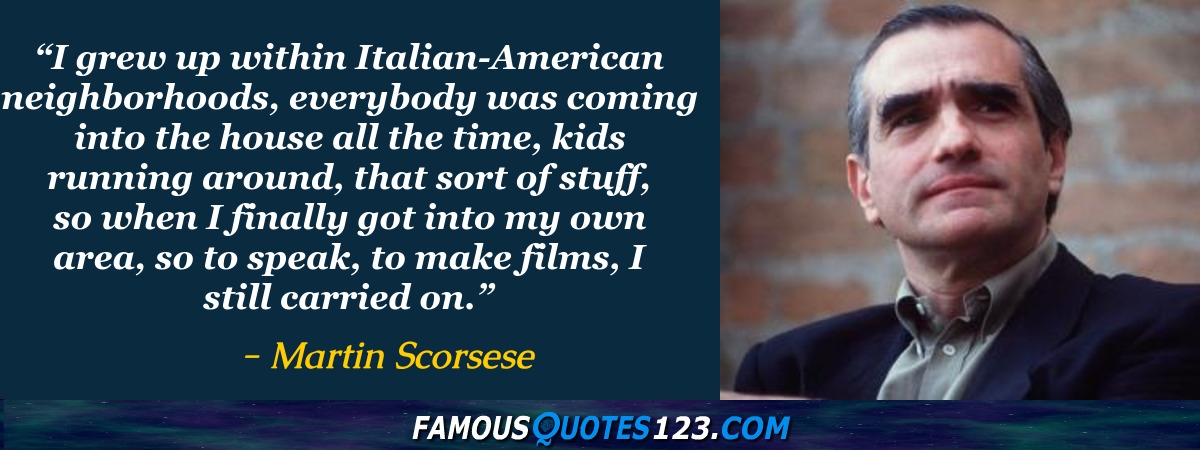
I grew up within Italian-American neighborhoods, everybody was coming into the house all the time, kids running around, that sort of stuff, so when I finally got into my own area, so to speak, to make films, I still carried on.
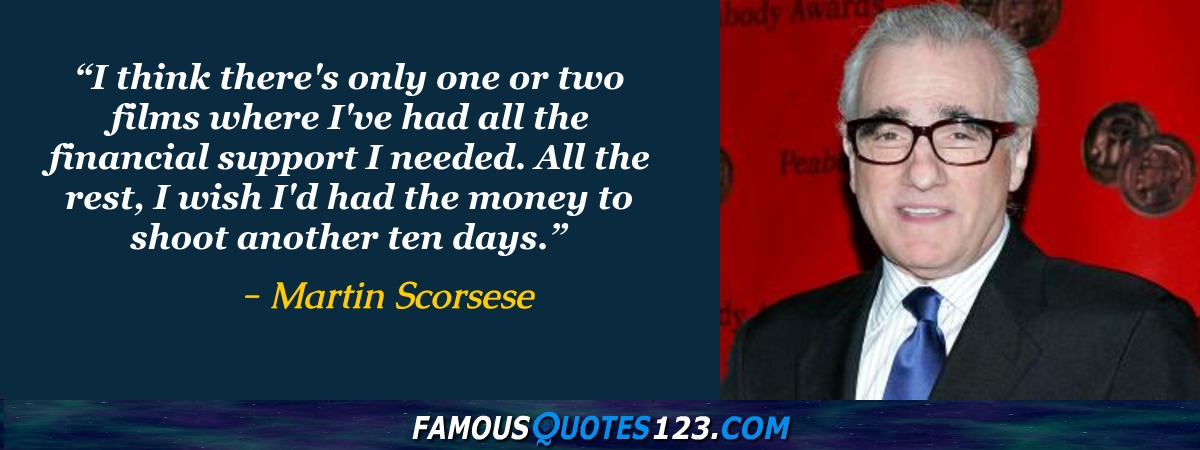
I think there's only one or two films where I've had all the financial support I needed. All the rest, I wish I'd had the money to shoot another ten days.
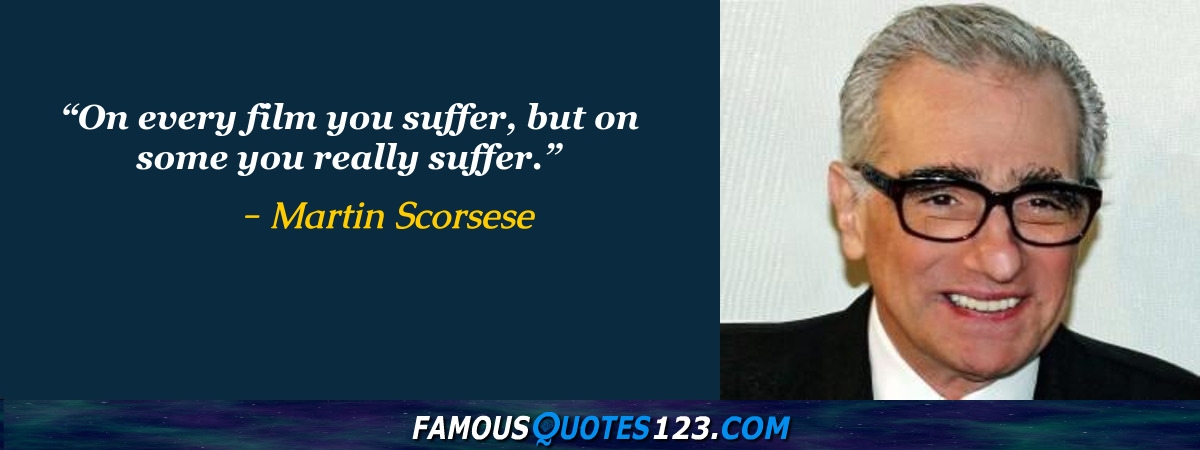
On every film you suffer, but on some you really suffer.
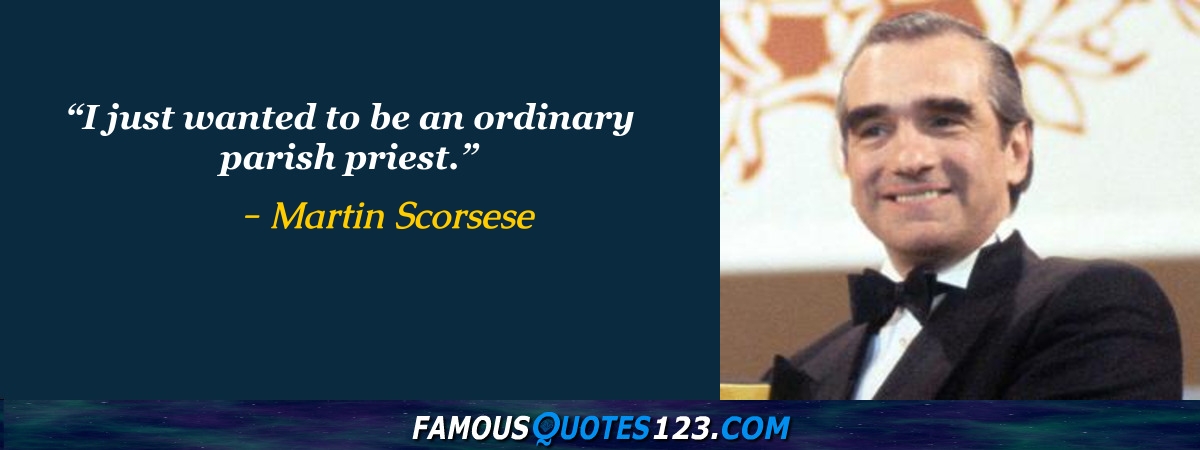
I just wanted to be an ordinary parish priest.
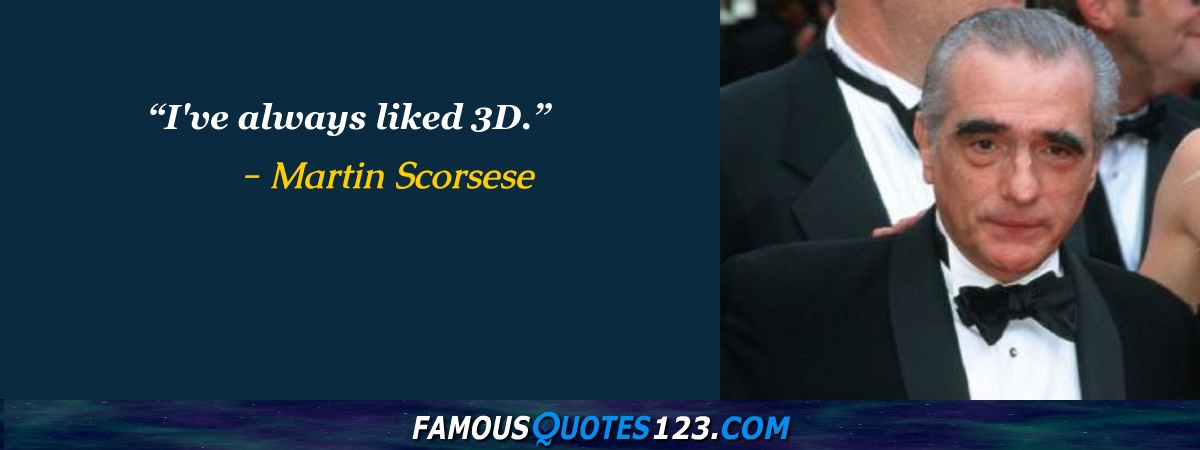
I've always liked 3D.
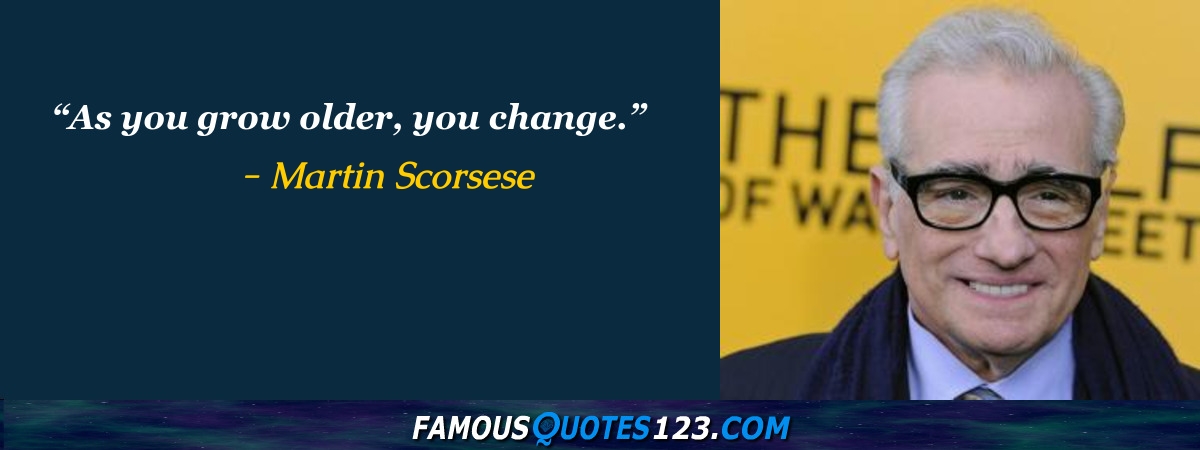
As you grow older, you change.
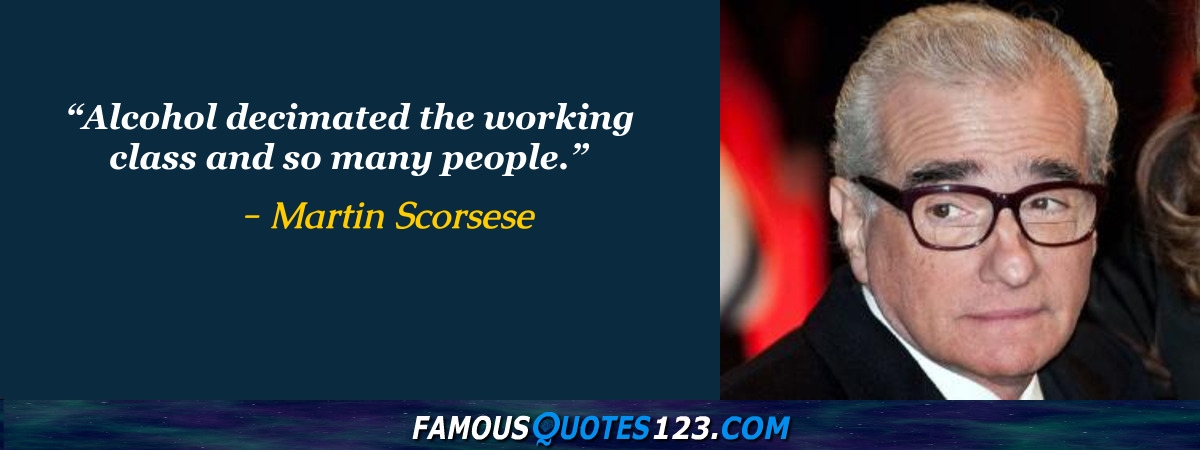
Alcohol decimated the working class and so many people.
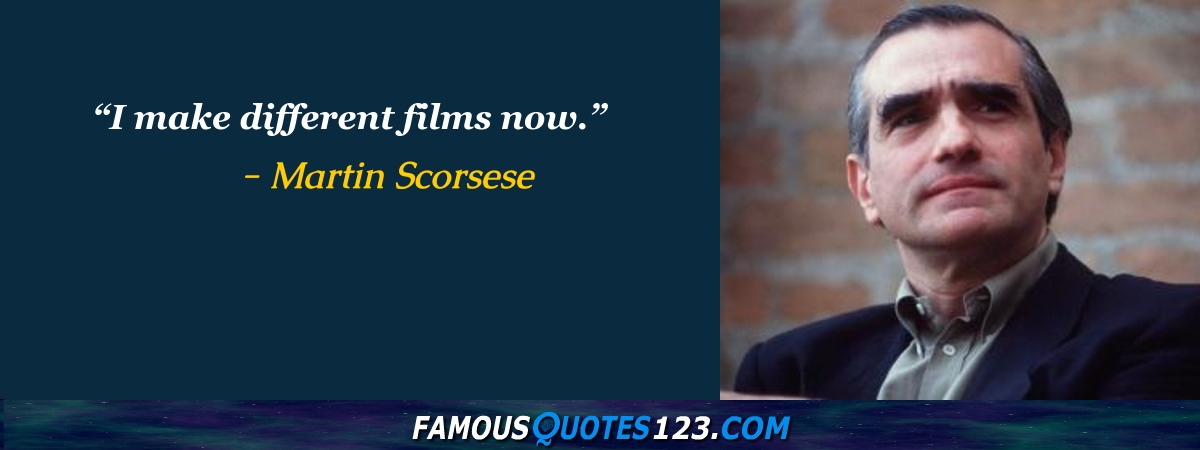
I make different films now.
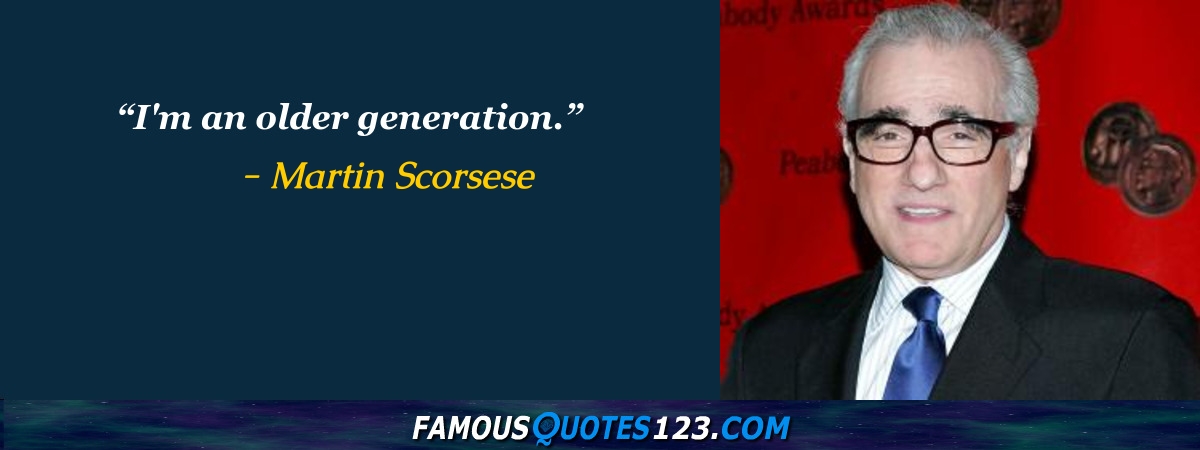
I'm an older generation.
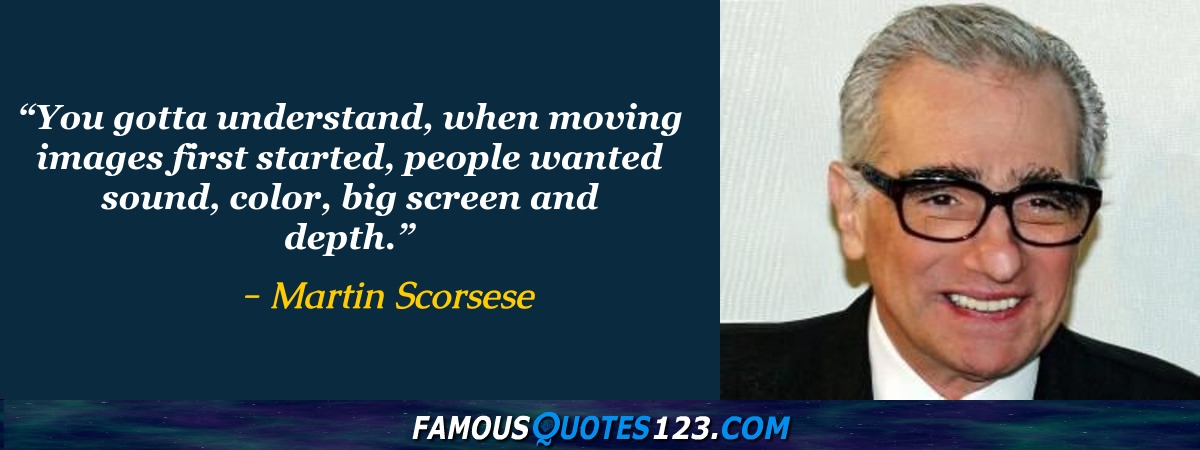
You gotta understand, when moving images first started, people wanted sound, color, big screen and depth.
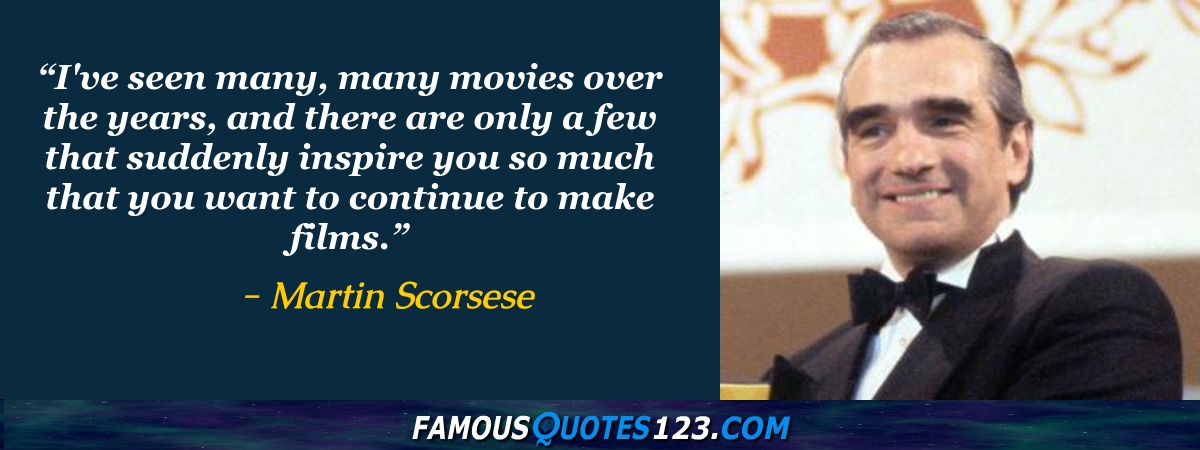
I've seen many, many movies over the years, and there are only a few that suddenly inspire you so much that you want to continue to make films.
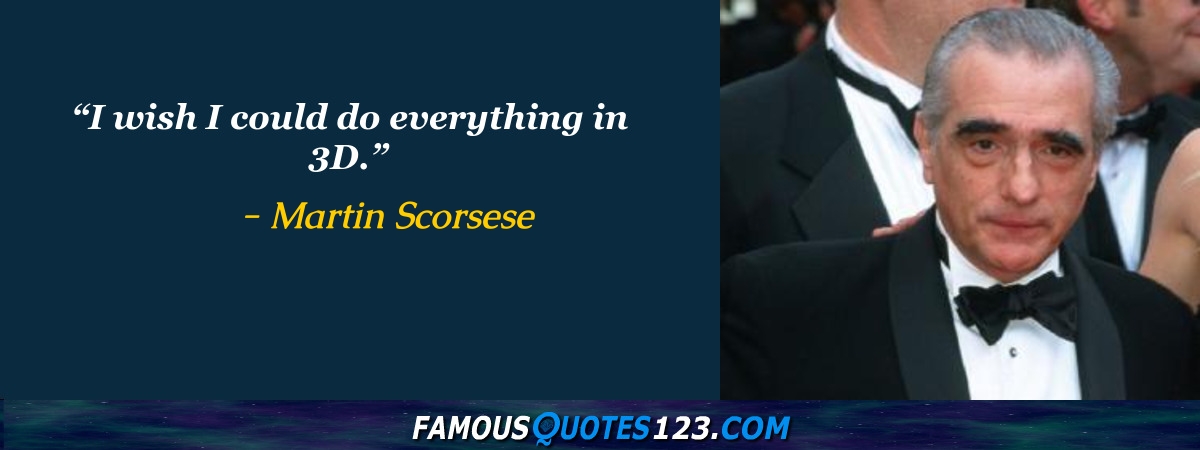
I wish I could do everything in 3D.
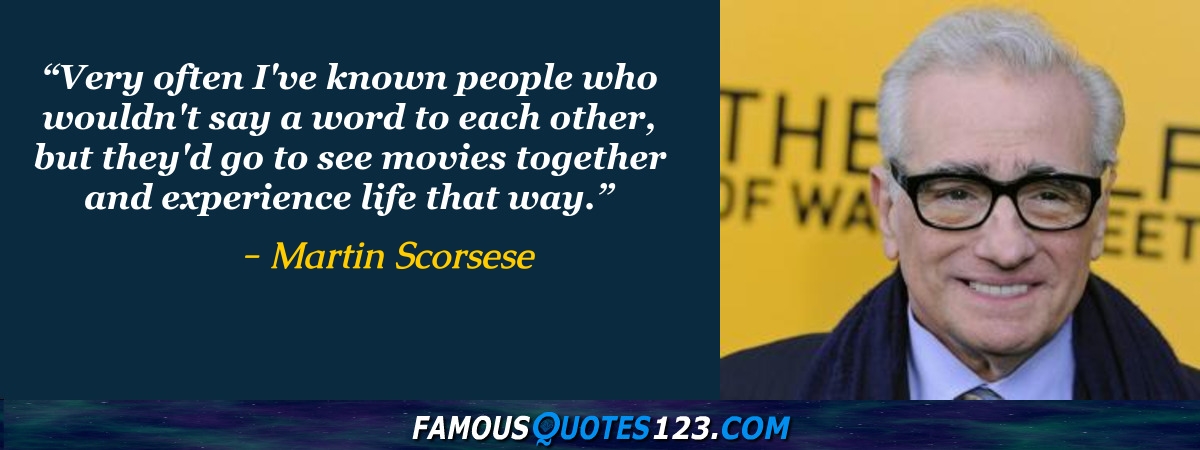
Very often I've known people who wouldn't say a word to each other, but they'd go to see movies together and experience life that way.
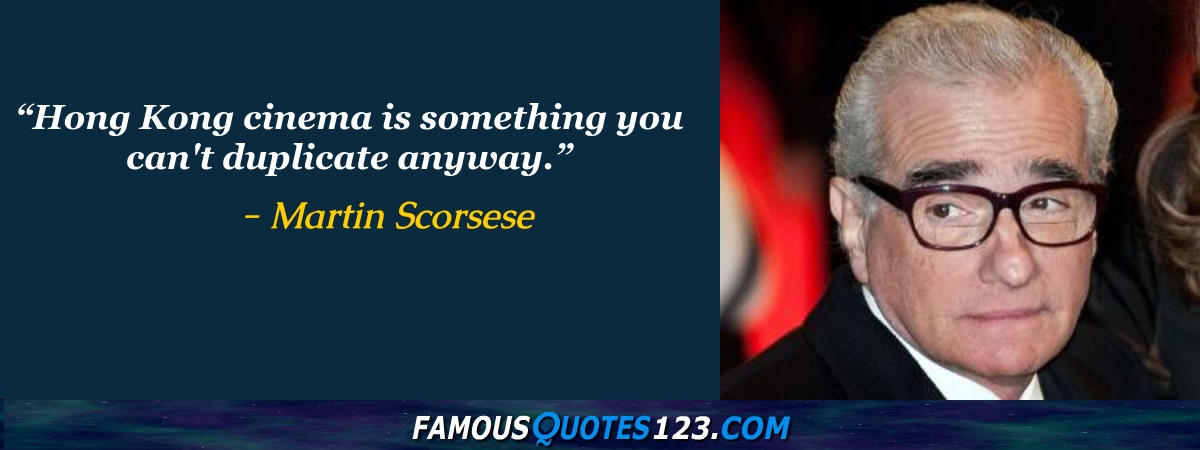
Hong Kong cinema is something you can't duplicate anyway.
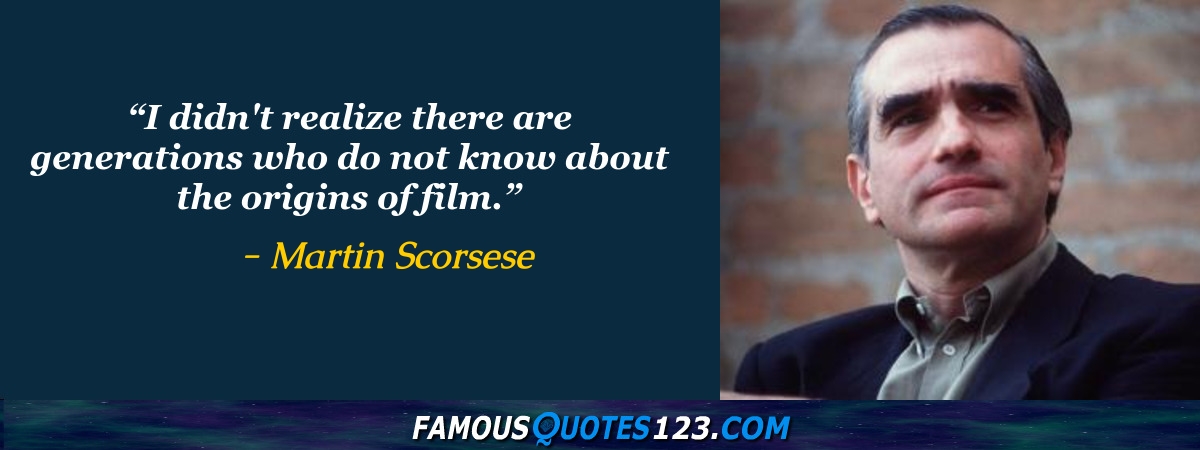
I didn't realize there are generations who do not know about the origins of film.
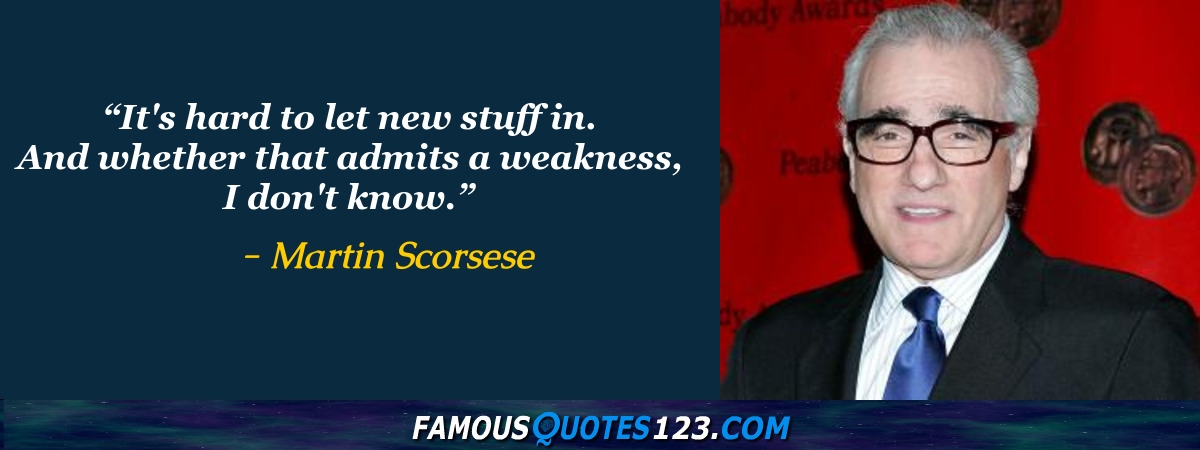
It's hard to let new stuff in. And whether that admits a weakness, I don't know.
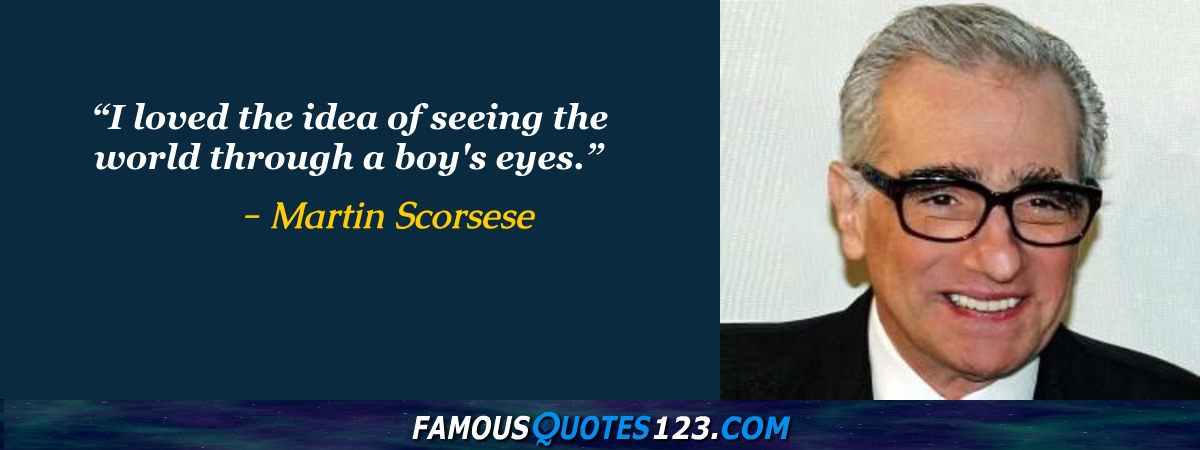
I loved the idea of seeing the world through a boy's eyes.
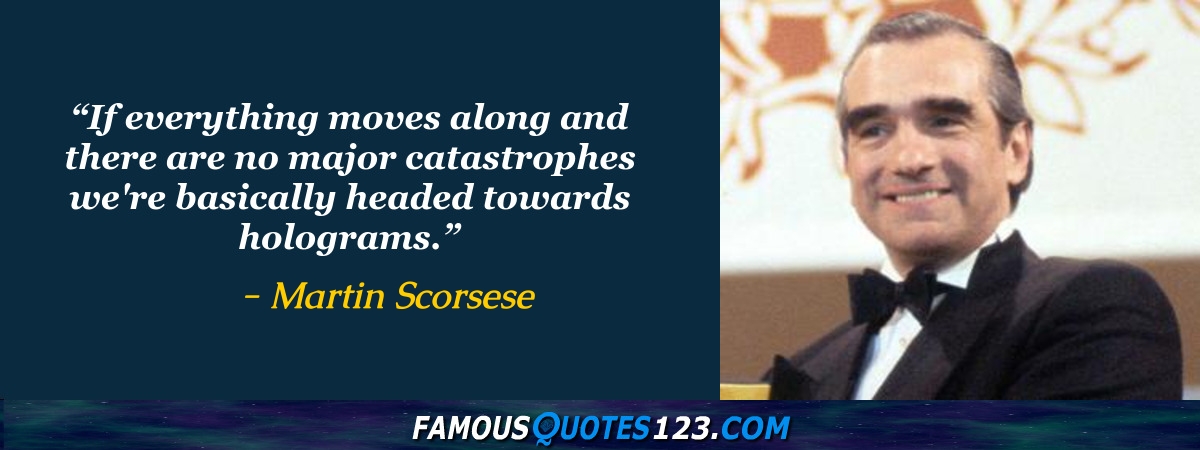
If everything moves along and there are no major catastrophes we're basically headed towards holograms.
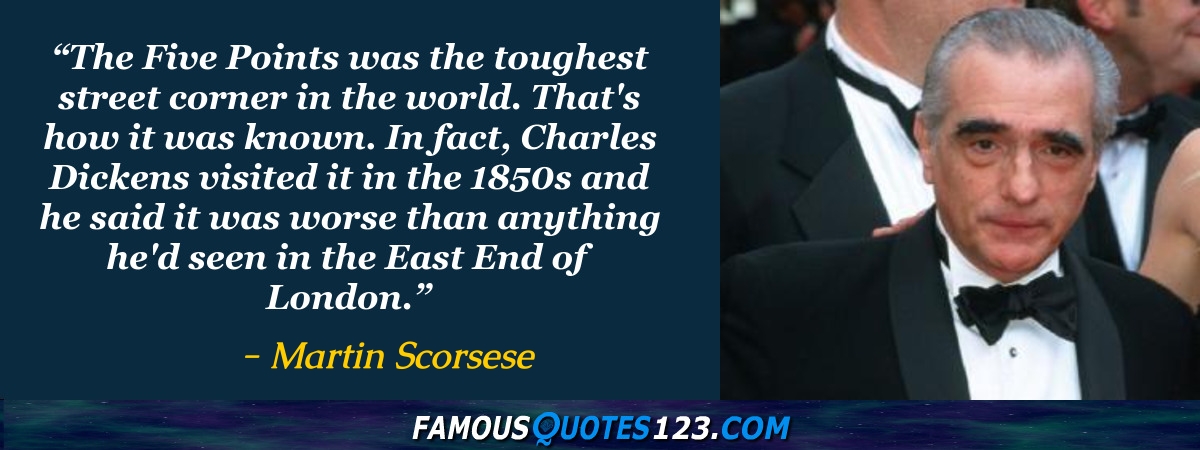
The Five Points was the toughest street corner in the world. That's how it was known. In fact, Charles Dickens visited it in the 1850s and he said it was worse than anything he'd seen in the East End of London.
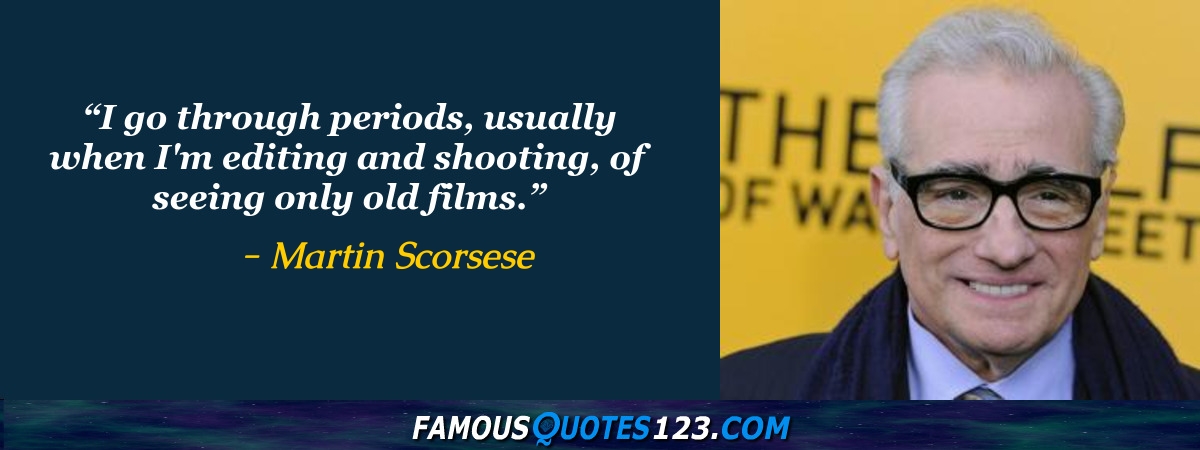
I go through periods, usually when I'm editing and shooting, of seeing only old films.
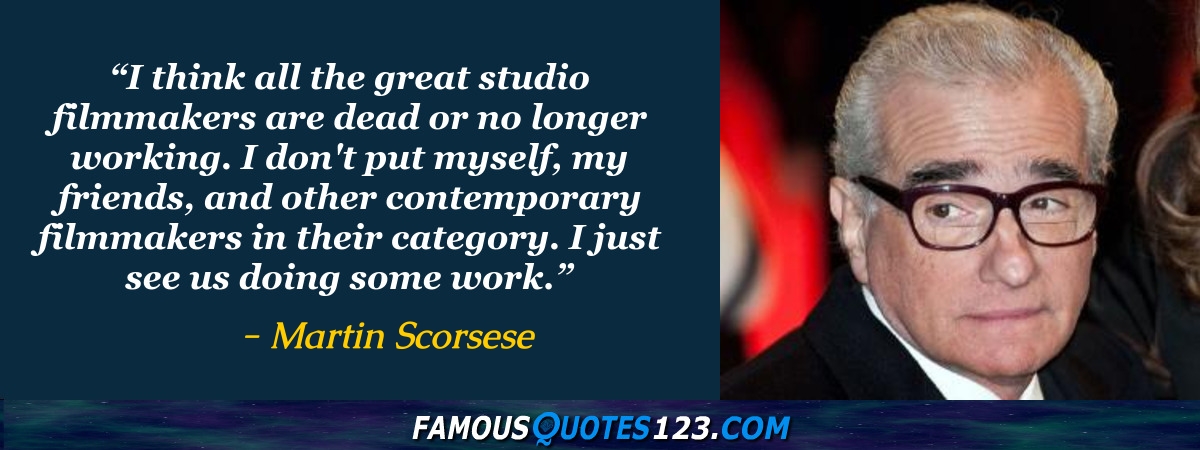
I think all the great studio filmmakers are dead or no longer working. I don't put myself, my friends, and other contemporary filmmakers in their category. I just see us doing some work.
I was saying as a joke the other day that I love film editing, I know how to cut a picture, I think I know how to shoot it, but I don't know how to light it. And I realize it's because I didn't grow up with light. I grew up in tenements.
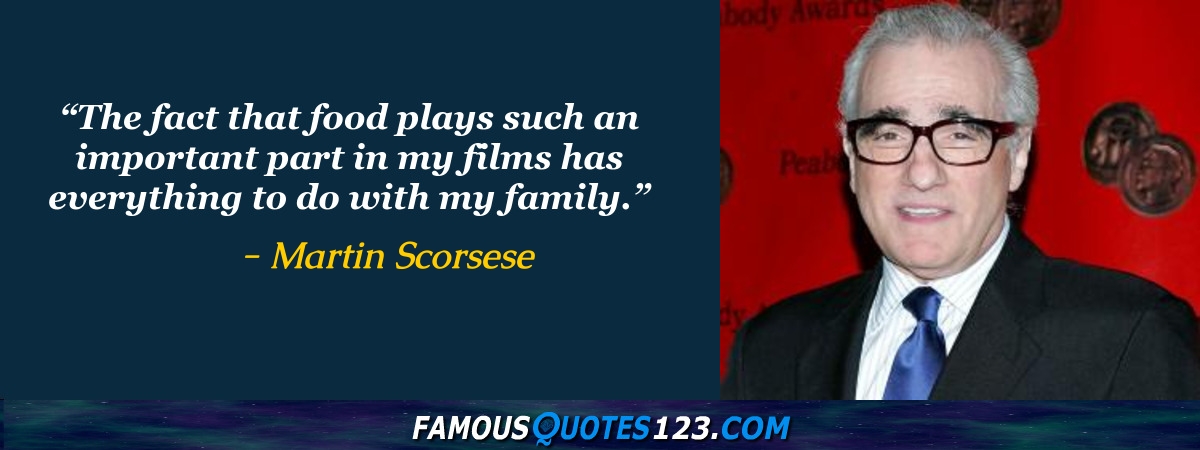
The fact that food plays such an important part in my films has everything to do with my family.
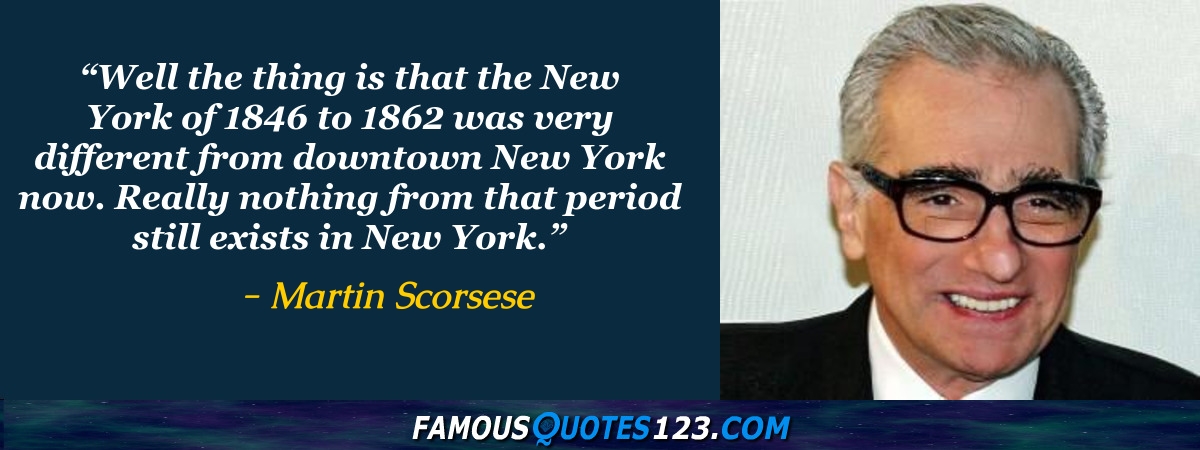
Well the thing is that the New York of 1846 to 1862 was very different from downtown New York now. Really nothing from that period still exists in New York.
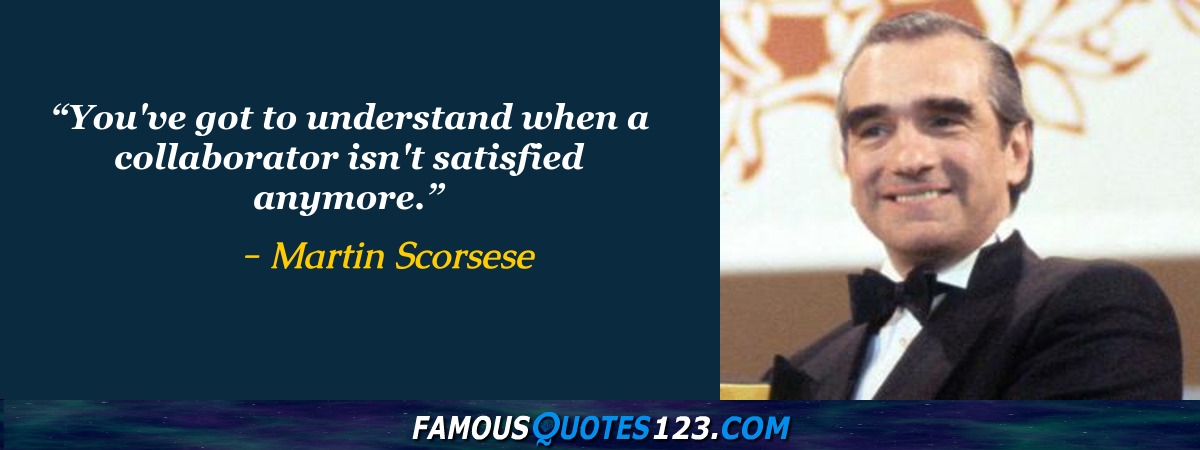
You've got to understand when a collaborator isn't satisfied anymore.
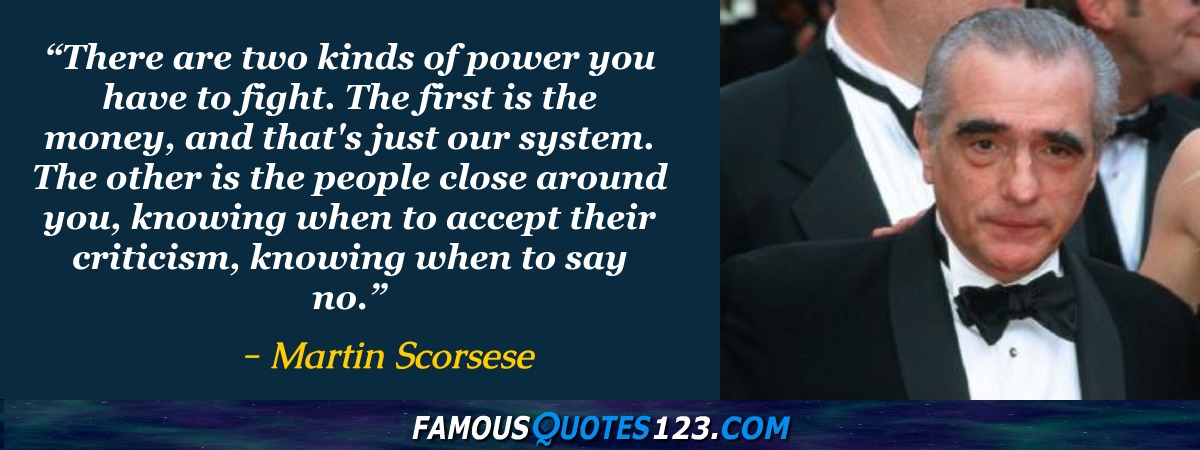
There are two kinds of power you have to fight. The first is the money, and that's just our system. The other is the people close around you, knowing when to accept their criticism, knowing when to say no.
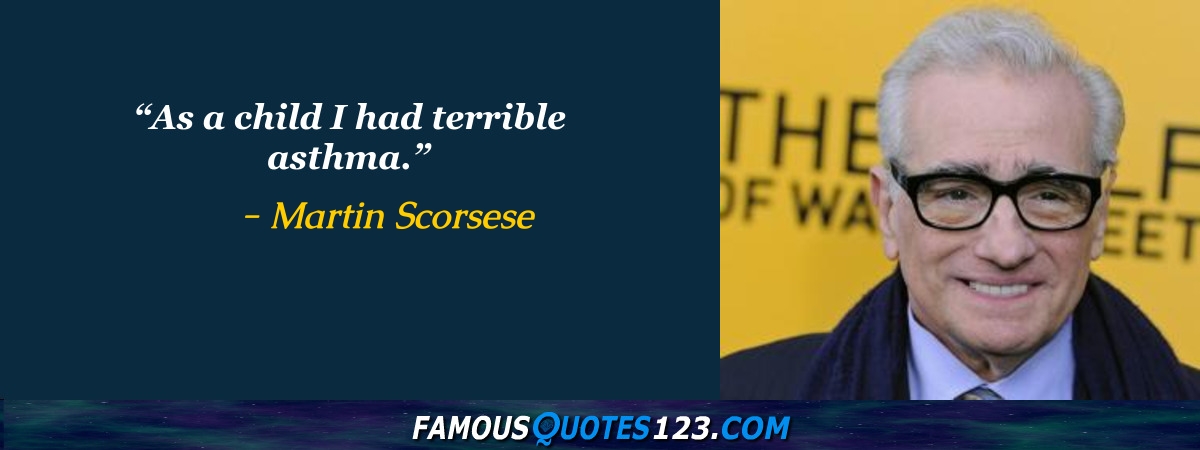
As a child I had terrible asthma.
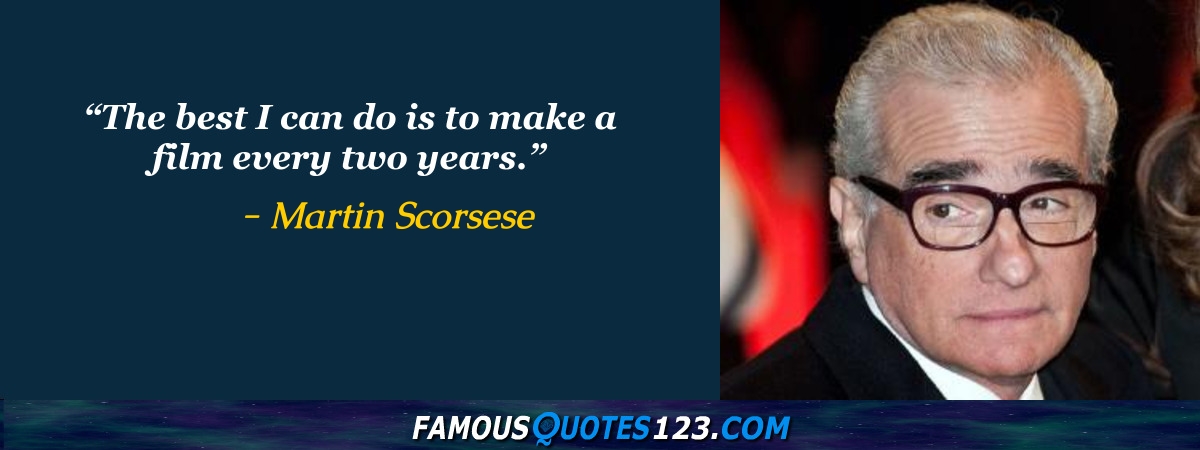
The best I can do is to make a film every two years.
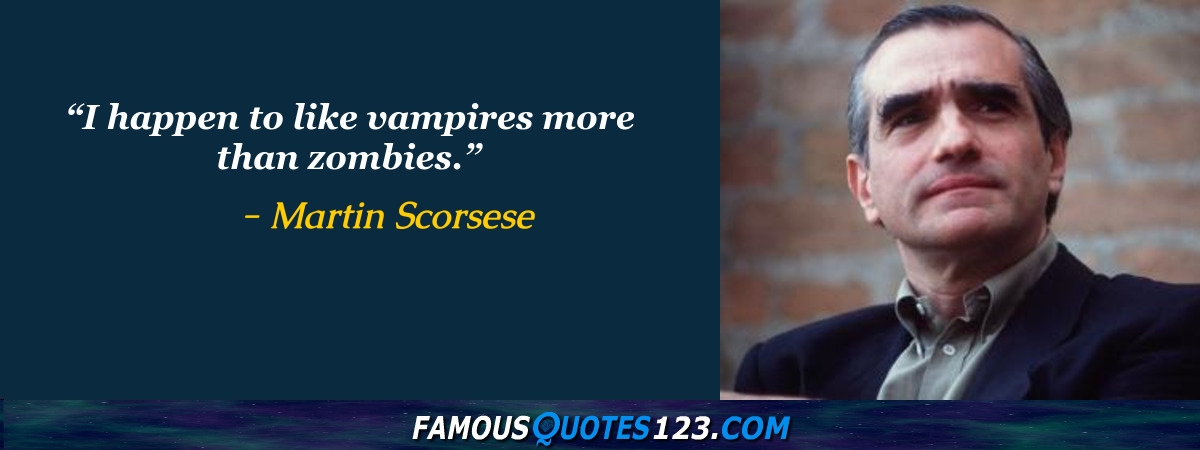
I happen to like vampires more than zombies.
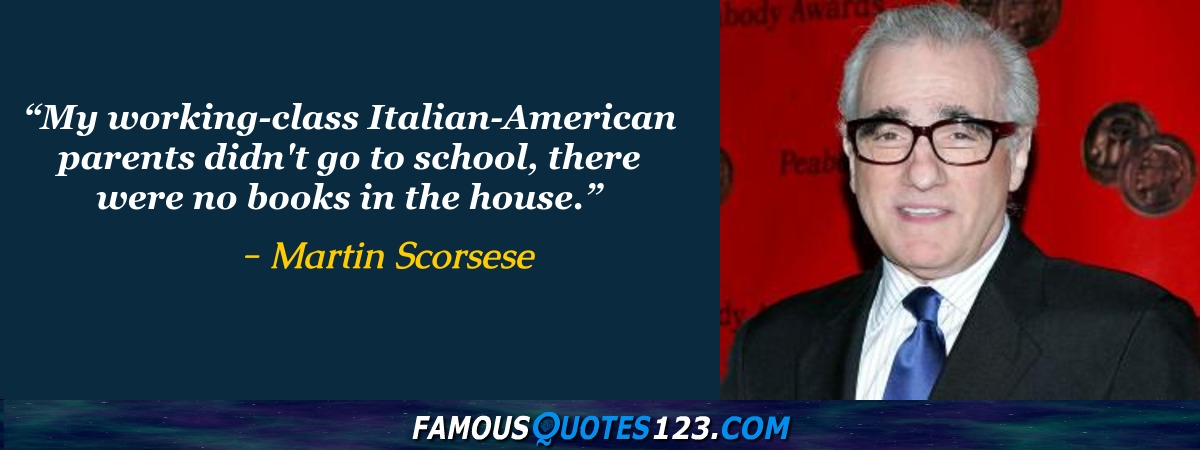
My working-class Italian-American parents didn't go to school, there were no books in the house.
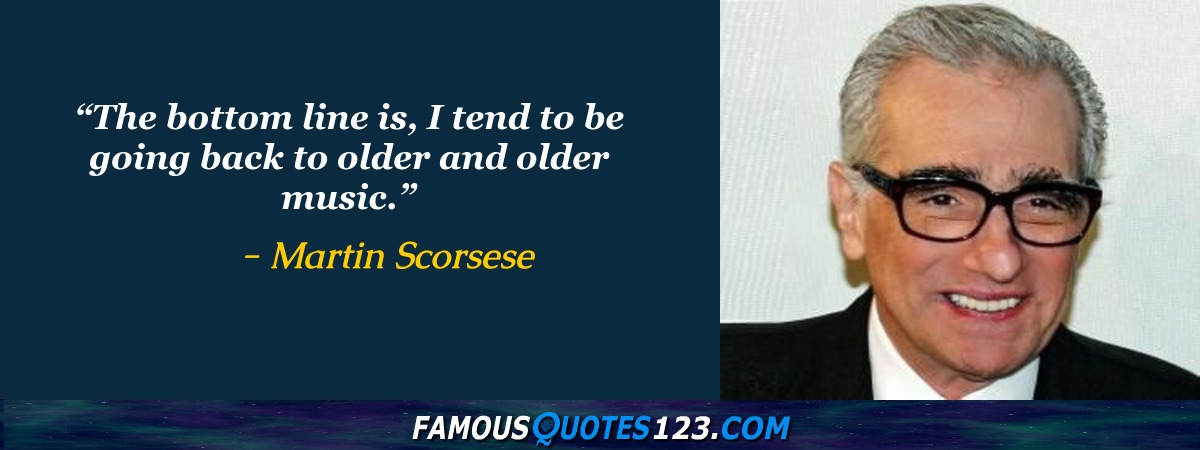
The bottom line is, I tend to be going back to older and older music.
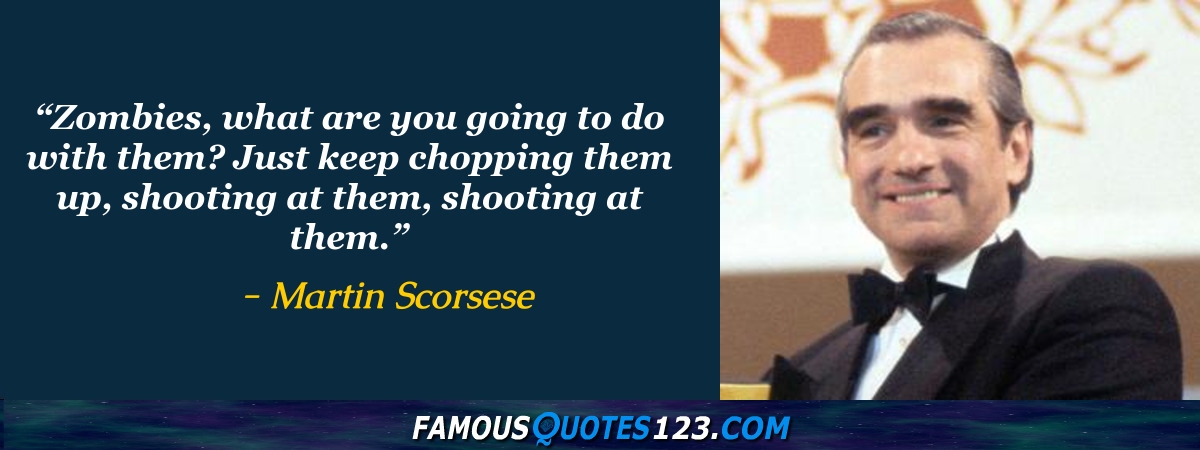
Zombies, what are you going to do with them? Just keep chopping them up, shooting at them, shooting at them.
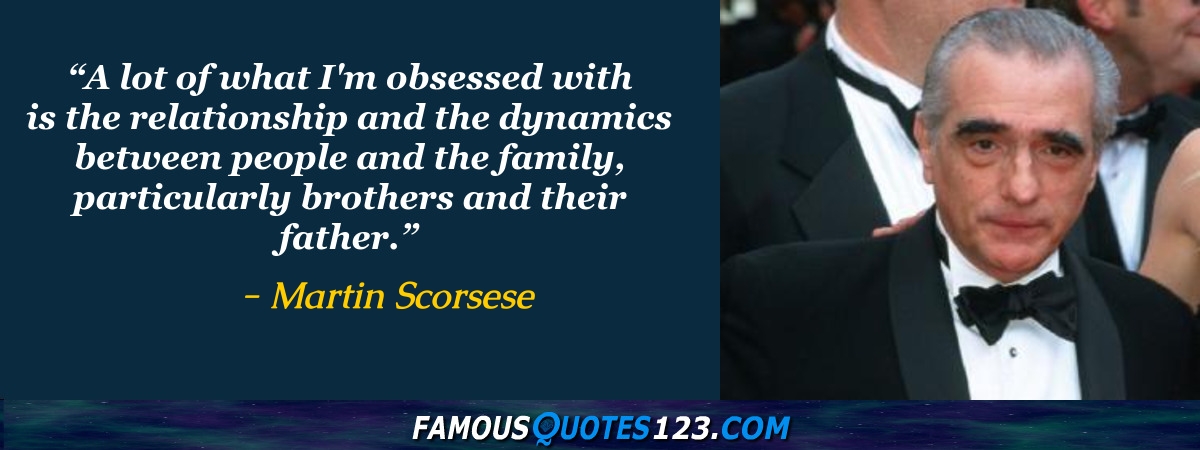
A lot of what I'm obsessed with is the relationship and the dynamics between people and the family, particularly brothers and their father.
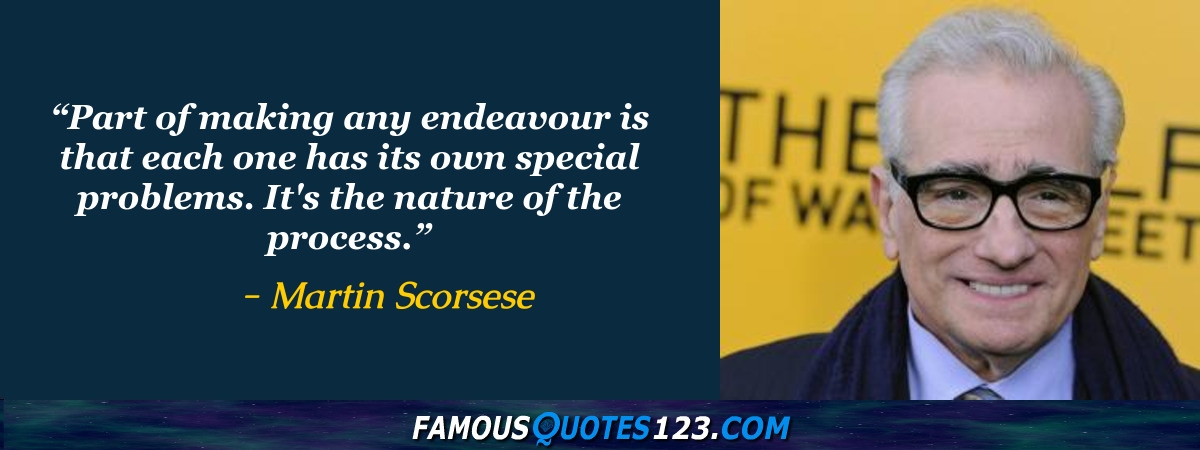
Part of making any endeavour is that each one has its own special problems. It's the nature of the process.